#major crimes rewatch before and after
Explore tagged Tumblr posts
Text
九龍城寨之圍城 | Twilight of the Warriors: Walled In (2024)
I've rewatched this movie more than once, since seeing it in theatres back in August, and each time was just as good as the first if not better. Given that, I now have many thoughts so I'm subjecting y'all to listening to why you should watch it:
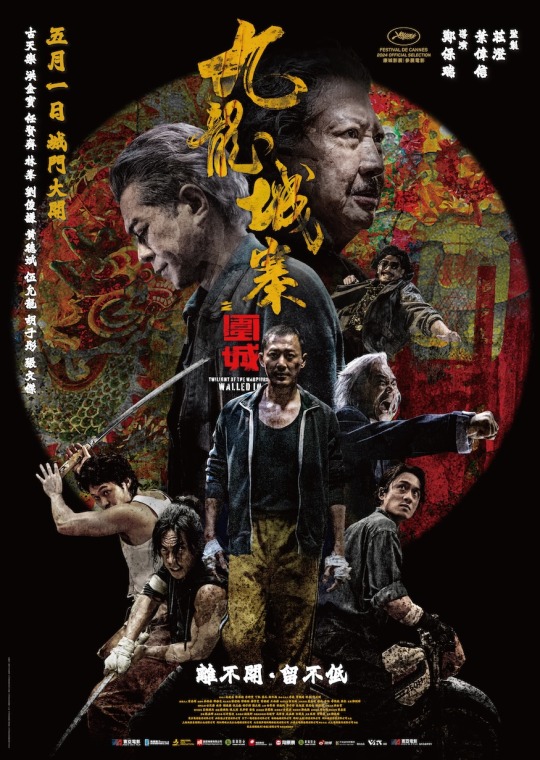
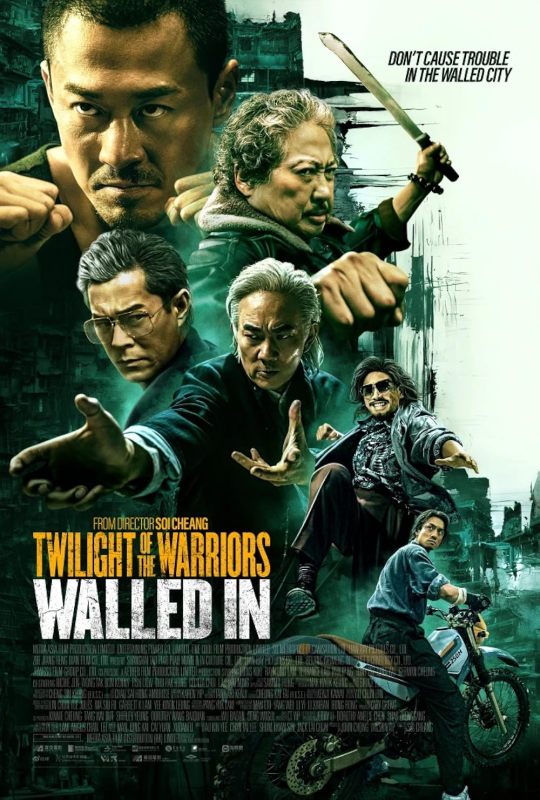
Twilight of the Warriors: Walled In (九龍城寨之圍城 or gau2 lung4 sing4 zaai6 zi1 wai4 sing4) is a martial arts action/crime film directed by Soi Cheang. It is an adaptation of the manhua City of Darkness by Andy Seto, and its source novel of the same name by Yuyi. The film's cast has established Hong Kong names folded in with newer-generation actors, starring Raymond Lam, Louis Koo, Sammo Hung, Richie Jen, Terrance Lau, Philip Ng, German Cheung, and Tony Wu (Aaron Kwok gets a cameo role, too).
At a broad glance, the movie follows several major triads in 1980s Hong Kong and their power struggle to control the Kowloon Walled City (a densely populated urban enclave, which for decades evaded direct governance by either the British colonial or Chinese powers in the area). We're introduced to the KWC and the triads' major players through the eyes of Chan Lok-Kwan (Raymond Lam), a man fleeing Vietnam and attempting to make a life for himself in HK. He winds up seeking refuge in the KWC, and comes to call both the city and the people he meets in it a home worth defending.
The narrative itself is not the most complex, but if you enjoy '80s Hong Kong films in these genres, it's solid fare and a harkening back to that decade. All the major themes like brotherhood (and brotherhood vs blood), vengeance, and struggle with conflicting loyalties are there, alongside an internal search for identity and belonging within Hong Kong. But the highlight in it is that the plot connects feast after feast of utterly stunning fight choreography, made all the more impressive by the fact that, according to Louis Koo, quite a few major cast members had never filmed this kind of action before. All their training was done just for TotW, and oh, does it pay off. I can't make good gifs, so you'll have to watch and see for yourself. It's not action for action's sake, either; listening to the head stunt choreographer discuss how different characters' fighting styles were crafted shows off how fight scenes aren't breaks in the story, they tell the story, and deepen our understanding of the characters.
The setting of the Kowloon Walled City truly makes the action in TotW stand out. It's a unique space to stage all these major fights, as the KWC's buildings at the time were packed together close enough to resemble a singular block from the outside. Once inside, it's a stacked, dark maze of uneven paths, stairs, and rickety roofs, with electrical and television cabling snaking over/around/through everything. Fight scenes in these streets feel thrillingly claustrophobic, with lots of acrobatics and near-dodges as characters navigate these tight alleys of the KWC. Each impact as a character goes flying into a wall, or is launched down a flight of stairs or onto a roof, is wonderfully visceral to watch.
All credit and hopefully awards are due to the production and set design teams for their work, in crafting this environment for the story and its fights. The visual/spatial representation of the KWC is the film's other glorious highlight, alongside the choreography. Whole streets of the KWC were recreated for this, filled with every mundane, period-accurate detail from the lives of ordinary people who would have lived there. It's impossible to catch all the intricacies put into making the KWC come to life again onscreen, just from watching the film. Shots like the credits sequence offer close-ups of harder-to-see details, and videos like a tour of the KWC set by Terrance Lau, acting as his character Shin, show off things from the drinks in the fridge at the corner store to the scribbled writing on the walls by the public taps. This film was designed with a drive to faithfully represent what the Kowloon Walled City had been like, how it looked when it was lived in, and they achieved it to an incredible degree.
That dedication extends to more than just the sets, though. The emotional core of TotW revolves around the KWC's inhabitants, and how they were the ones who made the city what it was, a home for about 35,000 people at a time. The film doesn't treat the KWC as just an eye-catching location to stage some fights; its characters might be fictional and overloaded with jianghu powers, but it goes out of its way to show how ordinary people might have lived, worked, and socialized within the historic city. It shows off why, despite its (not unwarranted) dark reputation, so many chose to live in a place that was once the densest urban center on the planet.
And this brings us to the acting, because the cast all do a very good job bringing their characters to life as the heart of the KWC. Louis Koo is fucking fantastic and arguably the scene stealer of the film as Cyclone, the triad leader in current charge of the KWC. He's grumpy, magnetic, and dangerous when he must be, but he also cares so very, very deeply about the inhabitants within his jurisdiction. Terrance Lau's Shin acts as his charismatic and capable right hand man, as well as protégé to Cyclone, befriending Chan Lok-Kwan and helping him become accustomed to life in the KWC. These two, along with the snarky Twelfth Master (Tony Wu) and the masked + imposing AV (German Cheung) become a quartet with great chemistry and friendship, the next generation to watch over and protect the Kowloon Walled City. Outside the KWC cast, antagonist figures like Sammo Hung, Philip Ng, and Richie Jen's characters are intimidating and compelling as threats to the city, and the lives people have etched out within its walls.
All of these things put together, and Twilight of the Warriors is a deeply fun, enjoyable, and rewatchable film (so good, in fact, that Hong Kong has submitted it as its nomination for the 2025 Oscars). The movie doesn't lose its emotional throughline in the promise of an action-packed ride it fully delivers on, and it uses its narrative, setting, and choreography to pay tribute to an earlier era of Hong Kong, as well as highlight + humanize a piece of the region's history that might not be quite as well known to some.
(The Kowloon Walled City was demolished and its inhabitants relocated in 1993. The area where it once stood is now a park, with some historic buildings preserved. If you're curious about people in the KWC before demolition, City Of Darkness: Life In Kowloon Walled City (1993) by Greg Girard and Ian Lambot is a collection of photographs and first-hand recountings from residents, recording their lives and stories. I'm in the midst of reading it right now.)
If anything I've said has piqued your interest whatsoever, I say to give Twilight of the Warriors a try, if you have a free two hours to spare. Something in it will be worth it for you. And if I've failed to convince you with any of this, or you need one more push, here's the trailer for the film:
youtube
And if I did manage to actually get anyone to seek out this movie, please tell me! I'd love to know your thoughts.
#hi i am NOT NORMAL about this movie come listen to me ramble about it!#twilight of the warriors: walled in#九龍城寨之圍城#ashton originals#ashton's recs
125 notes
·
View notes
Text
The Psychological Analysis of Jason Todd
I am a psych major, and my professor is allowing us to make an analysis of any character of our choice, so I figured who better to write then Jason Todd. This was very fun to write and I very much enjoyed rewatching Batman: Arkham Knight. Please enjoy. ☁️ Warning(s): Trigger Warning for Trauma, Mental Health Content, Violence, Graphic Imagery, Spoiler(s)☁️ Word Count: 2.6k ☁️: Authors Note: I am working on fanfics, more headcanons for Arkham Jason, unfortunately I am busy with classes, assignments and deadlines. I will try to be punctual but it may take time. Thank you for your understanding.

Introduction
Jason Todd is the secondary villain in Batman: Arkham Knight, which has the same moniker. He is the second Robin and Bruce Wayne's adoptive son.
Jason Peter Todd was born in the slums of Gotham City to two drug-addicted parents, who would eventually try to settle a debt they had by giving Jason away when he was a baby. Jason received no parental figure to help guide him, leading him to petty crimes such as theft to nourish his survival. Jason is a character who takes what he needs if it means prolonging his survival; his lack of a parental figure leads him to an identity crisis between longing for a parental figure and convincing himself he is better off without one. When the simple truth is that every human needs a mother and a father, we respond positively to a nurturing environment, and through early adolescence, our brains crave the structure needed to build us into well-rounded adults.
At fifteen, Jason inadvertently met Batman while committing robbery when Batman was fighting Gotham's notorious supervillain, The Joker. Believing Batman is in trouble, Jason jumps between pushing the hero from harm's way. Despite life's misfortunes, Jason possesses a remarkable code of morality enough to want to save someone. Jason, attempting to rid Joker of his breath, aims a pistol at the clown and, before firing, is knocked out of his hands by Batman's batarang. Unfortunately for him, Joker would leave Jason with a cryptic message, one for the young man to head.
Jason would later be apprehended and taken into custody in the back of a police car by Batman after Batman retrieved his gun and stolen money. However, rather than being charged, Jason receives a blessing through a Wayne Industries project that helped troubled teens; through the program, Jason was able to turn his life around. All attract the man who helped Jason find a new purpose: Bruce Wayne. Months after being released, Batman appeared in Jason's dorm, again offering Jason another opportunity.
2nd Robin and Kidnapping
Taking Jason in as his ward as well as dubbing him Robin after Dick Grayson, Jason sought justice and enjoyed being a hero. Like the previous Robin, he showed a keen aptitude for it; unlike his predecessor, he possessed a fiery temper and willingness for more lethal force. While Jason's temper is directed towards the criminals that harm the innocents, Batman views this as inexcusable, fearing the day that Jason will kill instead of reprimanding.
In the most twisted sense of irony, Jason's morality inevitably becomes his downfall. The Joker has blown up a school with kindergarteners; this leads to Jason's resolve that Joker needs to die. Knowing that Bruce would try to stop him, Jason abandons his comms and tracker so he can kill Joker. However, it is a trap, and Joker ambushes Jason. Jason was kept in a wheelchair, bonded by barbed wire that kept Jason leaning hunched over in excruciating pain. Throughout his pain, Jason's mind remained still; he was confident that Batman would find him; his sheer will at the beginning of his torture is, with all honesty, remarkable as Joker has been known for his mental abuse and mind games he plays with his victims including his sidekick, Harley Quinn.
In the six months of his torture, Jason's unwavering mental resolve was slowly crippling as Joker had wanted; throughout the game, Jason's voice mixed with crippling fear and small doubts about Batman coming. The Joker feeds into his doubts by showing him a photo of Batman with his replacement, Tim Drake. This leaves Jason troubled as he slowly loses hope for Batman.
The last act of Jason's torture involved a video sent to Batman via The Joker of Jason, who has undergone all his brainwashing; in the video, Jason is sitting down in a chair; he is not chained, barbed, handcuffed, or kept sitting still in any way by all means Jason could easily walk away. This is a significant and crucial part of Jason's torture as it symbolizes just how much mental anguish and emotional exhaustion Jason went through to the point that he no longer had a yearning for freedom—making him downright timid and submissive towards Joker enough to out Batman's identity when asked by the latter. This results in Joker shooting Jason point-blank in the chest, as Joker "never could stand a tattletale." However, this was only a ploy to make Batman believe Jason is genuinely dead.
On the contrary, Jason was kept alive for another year, endeavoring more torture, mistreatment, and malnourishment. Harley Quinn did the final touches of Jason's emotional and mental brainwashing; a former psychiatrist who manipulated Jason into believing that Batman was the cause of his anguish and his pain was his doing; she did this long enough, even punishing Jason by waterboarding him and electrocuting him when he refused to say Batman, indicating he still had some level of awareness of who was torturing him.
However, once Harley could get Jason to say Batman's name, Jason was drugged and beaten by two prisoners dressed like Batman; he was given a gun by The Joker and was ordered to kill them. Jason's resolve and humanity were a cord, still entrenched in him before Harley convinced him further, snapping his humanity and getting him to shoot the two dressed-up prisoners dead.
During the riots of Arkham Asylum, The Joker paid mercenary Deathstroke to keep Jason there and shoot him if he escaped. However, Jason convinces Deathstroke that Joker will not keep his promise and that if he helps, Jason will triple whatever Joker plans to pay. Accepting the offer, Deathstroke assists Jason in escaping, stealing a helicopter, and flying to Wayne Industries. Jason steals millions of dollars from his former guardian. Ironically, crossing paths with Tim Drake, who assumes Todd to be Deathstroke's sidekick, when Jason's ankle is caught between Tim's grappling hook, Jason cuts the cord, allowing Tim to fall when suggested by Deathstroke that killing Robin would bode well for them with the Dark Knight. Jason Coldy says that if he dies in a fall like that, Batman needs to pick his sidekicks better.
Jason's psyche has been torn and scattered, leaving him a hollowed carving with a mocking J branding etched onto his face, from birth his eyes were already met with darkness, born to parents who never showed him recognition, let alone love, and through the Wayne Industries Project and his adoption by Bruce his eyes were wide, and remarkably hopeful, to be free of the weight of Gotham's misfortunes finally; those eyes that looked with gleam forced shut until he saw nothing but blackness.
Arkham Knight's Birth
Jason adopts a new persona built on the pain and suffering in the wake of his escape from Joker. He feels betrayed by the one person he only had in the world and wants vengeance. Jason works alongside Scarecrow, one of Batman's enemies. The two begin a plan on Halloween to take Gotham and Batman's legacy along with it. Jason gathers all Batman's enemies to join, assembling a militia with Deathstroke. While working with each other, Scarecrow "tests" his fear toxin on the young man, sending him on a psychological spiral. One of his more apparent fears is the Joker, who can be found near, in the background, or standing right in front of him laughing and mocking him, but beyond the clown prince of crime's appearance, Jason also sees his replacement, Tim Drake, and "fights" him.
The fight has Jason severely outnumbered in the beginning, with Tim succeeding, even using his staff to choke Jason, forcing him to the ground as the Jokers around him laugh. Further into the fear toxin, Jason appears in front of Wayne Manor, where he throws down his helmet and says the following: "Someplace warm, someplace safe, someplace where I'm needed, someplace where I'm loved," Joker once again appears in front of him laughing and mocking him on whether he even deserves it, this is Jason's internal struggle in a manifested form of the person who caused him harm, of the person who convinced him from the start that he was alone and would not be saved. Jason is mischaracterized as always being angry or standoffish, but anger has more truth than any lie detector can scoop. Jason feels this anger is not just because of some personality trait; anger is his cry out, and he's shouting to be seen and loved. This is most likely due to being tortured at 15 or so, which, despite the fact that at the time of Arkham Knight, he was in his early 20s, his mental age was regressed to the age when he was captured. This makes Jason appear at first glance as someone emotional, cocky, and arrogant. He values safety and love; he doesn't want to be on his guard 24/7, but he's grown up in an environment where letting your guard down gets you killed. He follows Joker into Wayne Manor, where he sees Bruce; suddenly, several versions of Batman appear in the room. They beat him and told him they never wanted a partner or even a son. This is a conflict that has always waged war in Jason's mind. Jason's biological father attempted to give him up and then belittled him when he explained that Jason's worth was so low that he couldn't even leave him; he has low self-esteem that he internalizes into rage in the way that he fights to prove his strength.
This is why Jason has a strong attachment to Bruce/Batman it maybe due to an underlying desire to seek his approval especially by the time when he adopts him. Bruce gives him everything he could ask for and anything he could think of, and Batman gives him a purpose. Ironically, this is still the case despite Bruce himself having an avoidant attachment style.
Conclusion and Diagnosis
Jason Todd's character in "Batman: Arkham Knight" exhibits a complex interplay of psychological factors that align with the diagnostic criteria for Borderline Personality Disorder (BPD). One prominent feature of BPD is emotional dysregulation, characterized by intense and rapidly shifting emotions. Jason displays various emotions throughout the game, from anger and hostility to vulnerability and despair. His reactions often appear exaggerated or disproportionate to the situation, indicating difficulty regulating his emotional responses.
Furthermore, Jason's sense of identity is notably unstable, which is another hallmark feature of BPD. Having grown up in a dysfunctional environment with absent parents, Jason lacks a stable sense of self and struggles to define his identity. This is evident in his adoption of various personas, including Robin, the Arkham Knight, and, later, the Red Hood. His shifting identities reflect a profound inner conflict and a desperate search for validation and purpose. Jason's interpersonal relationships also reflect the interpersonal instability characteristic of BPD. He forms intense and unstable attachments to figures such as Batman, vacillating between admiration and resentment. His interactions with other characters are marked by rapid shifts in perception, alternating between idealization and devaluation. For example, while Jason initially idolizes Batman as a mentor and father figure, his feelings of betrayal and abandonment lead to resentment and hostility towards him.
Moreover, Jason exhibits self-destructive behaviors as a coping mechanism for his emotional pain, another hallmark of BPD. He engages in reckless actions, disregarding his safety to seek vengeance against those he perceives as enemies. His confrontations with adversaries are often fueled by a desire for self-assertion and control, masking more profound feelings of emptiness and despair.
Underlying Jason's behaviors is a pervasive fear of abandonment, stemming from his traumatic upbringing and experiences of betrayal. This fear drives his desperate attempts to maintain connections with others, even as he pushes them away with his volatile and unpredictable behavior. Jason's fear of abandonment manifests in his interactions with Batman and the Bat family, where he oscillates between seeking their approval and rejecting their authority.
Jason Todd's character in "Batman: Arkham Knight" embodies many of the core features of Borderline Personality Disorder, including emotional dysregulation, identity disturbance, interpersonal instability, self-destructive behaviors, and a fear of abandonment. By analyzing his actions, relationships, and psychological struggles within the context of the game's narrative, it becomes apparent that Jason's character aligns closely with the diagnostic criteria for BPD, providing a compelling framework for understanding his complex and multifaceted personality.
Besides indicating various symptoms of BPD, I would also consider diagnosing Jason with Complex Post post-traumatic stress Disorder (C-PTSD). Given Jason's background of severe trauma, including childhood abuse, neglect, and prolonged torture at the hands of the Joker, it's worth considering Complex PTSD. C-PTSD typically develops in response to chronic trauma and is characterized by symptoms such as emotional dysregulation, disturbed self-concept, difficulties in relationships, and a persistent sense of threat. I would include diagnosing Jason with Major Depressive Disorder (MDD): Jason's experiences of profound loss, trauma, and betrayal may contribute to symptoms of depression, such as feelings of hopelessness, worthlessness, and a loss of interest in activities. His struggles with emotional regulation and chronic feelings of emptiness could also align with depressive symptoms. Following my diagnosis, I am also inclined to believe he suffers from attachment disorders; given Jason's tumultuous upbringing and experiences and a multitude of parental figures involving neglect and abandonment, it's possible that he may have developed attachment-related difficulties. This could manifest in insecure attachment styles, fear of abandonment, and challenges in forming and maintaining healthy relationships.
Furthermore, I would consider Antisocial Personality Disorder (ASPD): While Jason displays empathy and compassion at times, his willingness to engage in morally questionable or violent behavior, as well as his disregard for societal norms and rules, may align with some features of ASPD. However, his capacity for genuine care and loyalty makes this disorder out of sorts with his character.
Lastly, Post-Traumatic Embitterment Disorder (PTED): PTED is a proposed diagnostic category characterized by intense feelings of injustice, betrayal, and embitterment following a traumatic event or series of events. Jason's experiences of betrayal and abandonment, particularly by Batman and the Joker, may resonate with the symptoms of PTED.
In conclusion, the character of Jason Todd in "Batman: Arkham Knight" presents a compelling portrayal of psychological complexity shaped by a tumultuous history of trauma, betrayal, and profound loss. Through a comprehensive analysis of his experiences and behaviors throughout the game, it becomes evident that Jason embodies many psychological struggles, warranting consideration for various diagnostic possibilities. Borderline Personality Disorder (BPD) emerges as a primary candidate, given Jason's emotional volatility, identity disturbances, and interpersonal difficulties. His tumultuous relationships, intense fear of abandonment, and self-destructive tendencies align closely with the diagnostic criteria for BPD. Furthermore, Complex Post-Traumatic Stress Disorder (C-PTSD) offers another lens through which to understand Jason's psychological profile, considering his history of chronic trauma and its pervasive impact on his functioning.
Additionally, Major Depressive Disorder (MDD) may contribute to Jason's experiences of profound despair, hopelessness, and emotional emptiness. His struggles with attachment-related difficulties suggest the possibility of underlying attachment disorders stemming from his early experiences of neglect and abandonment.
While Antisocial Personality Disorder (ASPD) and Post-Traumatic Embitterment Disorder (PTED) offer alternative perspectives, they may not fully capture the complexity of Jason's character, given his capacity for empathy and genuine care, despite his propensity for morally questionable behavior.
In essence, Jason Todd's character in "Batman: Arkham Knight" is a poignant exploration of the human psyche's intricacies, illustrating the profound impact of trauma on identity, relationships, and emotional well-being. By delving into his psychological struggles within the context of the game's narrative, we gain valuable insights into the complexities of mental health and the enduring resilience of the human spirit.
#arkham knight#jason todd#red hood#headcanon#positive thoughts#psychology#psych student#arkham batman#psychological analysis#psyche student analyzes#jasonswh0rre
201 notes
·
View notes
Text
in succession 2x08 dundee when logan says “the past is all made up” i really do think that’s the thesis of the entire show btw.
like, the roy kids’ conflicting memories of their childhoods that are never clarified through any kind of flashbacks or confirmation, the entire fucking cruises scandal and the coverups of major crimes, kendall’s accident and how he even tries to rewrite the past in the finale (“that didn’t happen. I made it up”) as logan so often did in both big and small ways (from denying his knowledge of the cruises crimes before congress to small moments of “I told you this already” and “did I even make contact?”)
the fucking poem Dreamsong 29 by John Berryman that all the season finales are named after. this is just the last stanza:
“But never did Henry, as he thought he did, / end anyone and hacks her body up / and hide the pieces, where they may be found. / He knows: he went over everyone, & nobody’s missing. / Often he reckons, in the dawn, them up. / Nobody is ever missing.”
And we never have real confirmation that logan did know about cruises because the characters (minus kendall) deny it to the last. but we know. we keep our plausible deniability because we don’t know, but we know. the show essentially makes us complicit in the same way that the characters are. most of them don’t know that he knew, because they never had any explicit proof, but as kendall says in season 3 “C’mon. We knew.”
the narrative continually shows us that logan “keeps a watchful eye over his whole empire” with perhaps the best example being how he buries the evidence of kendall’s accident and manslaughter at the end of season 1. that’s a very clear parallel to the cruises situation and that’s so skillfully and subtly woven throughout season 2 when the cruises scandals are coming to light and kendall is still reeling from the accident and his guilt.
and all that’s not even touching on the whole matter of ATN and the debate over how involved logan really is in what news stories and political views his network pushes (which could be a whole separate post of its own). very similar to how the cruises thing is handled, the line is always that logan isn’t involved, while the narrative shows us otherwise.
there are a million other examples both big and small that i could pull but this post is already such a disorganized mess. someday i’ll write an essay about it i swear, or maybe somebody else out there already has, but i just needed to point out how brilliant and subtle the show is about this as i’m rewatching season 2
#feel free to add on to this if you have more examples!!#or more analysis!!#this is by no means comprehensive or complete#it’s just food for thought so please feel free to engage#i may add to it myself in the future#succession#logan roy#kendall roy#succession meta#ro speaks#ro rambles incoherently about succession#insert the charlie always sunny pepe silvia meme here#that’s what it feels like to think about this beautiful harrowing television show
52 notes
·
View notes
Text
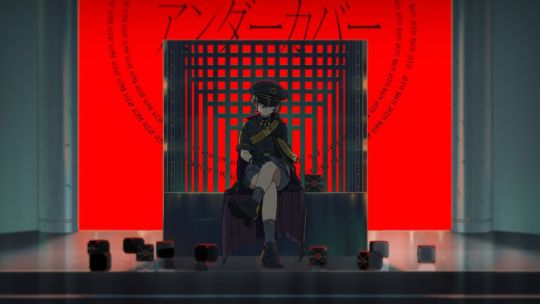
My thoughts on how the Milgram mv machine works based on the evidence we have:
(I know there’s been discussion about where exactly the interrogations take place, but wherever they are,) the prisoners are made to sit in a specific chair near the wall that houses the machine.
It’s ordinarily hidden, but the wall panels shift aside to reveal it when the mechanical sounds play in the dramas. As well as the walls moving, the chair transforms to restrain the prisoner and attach whatever it takes to access their brain. The fact that none of the more frightened prisoners try to run or break it makes it seem like they physically cannot. This is why Fuuta sounds so panicked, and why Amane is suddenly helpless in front of Es in their T1 vds.
(My mind conjures very classic sci-fi mad scientist machines with wires, pipes, lights, nodes, needles, etc, but I’d love to hear how other people visualize it.)
In some vds (maybe all? I’d need to check,) you can hear Es take some steps right before their iconic line -- it would make sense that for safety reasons, the power mechanism is placed across the room. Once again it could be anything, but the sound effect makes me think of one of those giant wall-mounted levers you have to pull down.
The voice dramas don’t really provide the type of crime details that an actual interrogation would reveal, and it’s odd that they’re placed before the extraction rather than after Es gets to see the new details. This leads me to believe the machine functions with priming. All Es needs to do is get them talking about their murder, so it’s on their mind.
The video produced is much like a (non-lucid) dream. Even if the prisoners figure out that this is how it works, they can’t control it just by thinking really hard about something else. The murders produce the strongest emotional affect, and that’s what it picks up on. If someone else used the machine, it would default to whatever gave them the strongest emotional reaction in the ~15 minutes beforehand, hence why Es’ video focuses on their daunting task ahead. (The Undercover theory is still a bit loose, though, given the private shots that Es wouldn't have known about). It’s why the videos are usually closely linked to the vd topics/beats. I also like to think that the reason their prisoner colors appear so much is because they’re looking at those colors on their uniform 24/7.
The bell rings to inform Es that it’s the optimal time to use the machine -- the prisoner has been thinking about things for long enough that the video will be about their crime, and if the conversation lasts much longer they’ll start thinking of other things. It’s at a different time for each prisoner because it’s based on the specific conversation. I guess Jackalope is listening in to the interrogation, timing it perfectly. (The only one that kind of messes with this theory is Yonah, because they just keep talking afterwards lol, but it could just show that the interrogation is still in Es’ control.)
Their “Sing your sins” is the final priming nudge to get them to think of their actions as a sin, revealing their guilt.
Once activated, the prisoner enters a sort of trance/sleeping state. It’s very much like REM sleep, with the machine forcibly activating neurons and recording the output. The prisoners have asked Es what they saw, meaning they don’t remember the mvs. I like to think the prisoners do experience the mv in real time, acting as the major version of themself that appears, but can’t remember it afterwards. It’s when you experience a dream, but as soon as you wake up you’re just left with fleeting emotions and memories right on the tip of your tongue.
The video plays immediately upon extraction -- whether on a huge projection or little screen depends on which room it’s in. It simultaneously saves the memory so that Es can rewatch it later (on those old TVs in the jailbreak mix). The machine downloads the song and video together, but requires special parts to retrieve them. The technology is pretty new and fragile, so if one is broken, there might be a delay between when Es can hear the extracted song and see it with the video. (That’s my justification for Kotoko’s delays -- after 9 prisoners the parts wear out, or maybe Mikoto himself overheats it with his complex situation.)
Based on the lack of conversation we get afterwards, I picture Es leaving before the prisoner wakes from the trance. The machine adjusts their brain back to normal before they awaken, restraints freed and able to return to the rest of the prison.
It’s very much like a dream, so it’s not harmful despite the amnesia/head injuries the prisoners have. It does, however, exhaust them. Brain activity alone takes a lot of energy, so forced brain activity with added emotional strain would cause them to feel pretty drained the rest of the day.
#milgram#👍👍#if theres anything contradictory please lmk -- this is how ive been taking the evidence we have so i definitely want to rethink things if#theres a mistake#but also i just wanna hear what people have been picturing 🤔#i mentioned it before but the jailbreak tvs really did shift my brain from sleek tech to clunky old scifi vibes#im also still partial to an idea mentioned a long time ago about the prisoners waking up to catch the last few moments of their mv#and how heartbreaking that can be for some#but i feel like it would make more sense if there was no direct interaction after the extraction since es is overwhelmed with different#reactions (from us) and the prisoners themselves are raw with emotion and fatigue#i like the thought of interrogations occuring in that big courtroom (seen in undercover and now deep cover)#but that room seems way too echo-y for the vds to take place in#and it seems overkill to build every cell with moving panel walls and access to the machine#so the jurys still out on that one#(also hehe im still so excited that my oc fits very nicely into all of this but i kept this post 100% canon compliant)#analysis/thoughts
104 notes
·
View notes
Text
Hudson and Rex S07E02
Got a bit too long.
There is no way those guys manage to balance episodes better when they have a multitude of issues to deal with than when they have none. Are you kidding me?
Rear Window/Home Alone episode? What crazy genius thought of that? Where was that crazy genius in all the other seasons? I’m starting to think that these writers perform better under the immense stress of having to come up with logical plot lines for explaining character absences.
Before I forget. Dear promo department, just because the episode starts with the end scene (almost end scene) doesn’t mean you get to put that scene on the promo.
Oh, by the way, did we ever do that? Start with a major scene and go backwards? I love that I just did a rewatch, by the way.
Charlie and Sarah moved in together (and she’s already deciding what to keep for the household, watch out, Charlie), and they just… moved in. No explanation. I guess the house was on offer? Too good of an offer to pass up, so they were like, what the hell. Can this even be aired on Up Faith and Family?
Charlie working the electronics in the new house. Lord help us. The "it's very tough to hear because you're barking" to Rex was funny.
Rex was "like that" with the old house? No, he wasn't. You're lying. Also, he's been trying to find a place to sleep because THERE ARE BOXES EVERYWHERE.
We have a great word for when a house is not yet finished and still looks like a constructions site and there is no English equivalent! Ugh.
Sarah has already started throwing away Charlie's stuff!
Lochlyn Munro was on White Chicks with John Reardon. I haven't watched that movie in some time but I still have the feeling I wanted to punch both their characters there lol
"I don't think she's coming back after that cruise". Well, you definitely jinxed her, Sarah.
I love Rex at home montages so much. And the music.
After more than 100 episodes, we finally see a cat. I wasn’t sure they existed in this universe. Also, Rex's cat plushie is 100% new.
Guns? You guys were shipping guns? What are you, Americans?
I like the throwbacks already. Even though I despise those two characters. Now I'm actually glad that I did the rewatch because while I'd remember Porter, I would definitely not remember ginger cop.
What do you mean the SJPD assigns the password purely based on someone’s name and birthday? Without any random numbers or characters??? I’m sorry but then the shitfest that inevitably followed is on the IT department. Everyone knows that most people, cops or not, will not bother to change their password. That’s why the password assigned must be RANDOM. Jesse, I’m blaming you. You’re the only IT guy in there I know.
Porter. You trusted Porter. Joe, I don’t know what to say, honestly.
Speaking of, what the actual hell do you mean IA found no further misconduct in Porter’s other cases? That’s impossible. Just this month while on my rewatch, I was writing that there is no way they won’t find anything, not with the way he handles cases. Did they even look?
“I look forward to meeting the real Rex”. Ohoho, buddy…
I like how affectionate Sarah is with Rex.
Sarah to Rex: "Charlie understands your signals better than I do." Charlie: *attributes Rex’s barking to him smelling fertilizer, which if I recall has never happened, and almost washes away the blood off the murder weapon by accident, because he’s well versed in Rex speak* (I’m not mad. It was funny. Although I definitely called him an idiot there. Welcome back, himbo!Charlie.)
Hey, we got Charlie on his bike! On the seventh season.
I wrote a lot of things on my rewatch, most I’ve already forgotten. One thing I remember writing, was that if there are two cases that start as separate, they will magically connect at some point in the episode in almost every crime show. I feel like this show lives to prove me wrong.
Pet peeve. Jesse has his finger on the trigger the entire time during the arrest scene. It is 2025. Why did they bother to teach Justin Kelly the proper stance and didn’t bother to tell him that the index goes on the side of the frame of the firearm when they have to shove a camera on his face and arm. I'm not mad at the actor, by the way, it's not his job to know, that's technical stuff. What’s weird is that I’ve seen 100+ episodes of Hudson and Rex (102 now) and I think John Reardon has never done this? And I think that because I’d have reacted like that. In fact, I remember pointing out that he did hold it properly numerous times. So, silly me, I thought they had someone to tell them about stuff like that, at least for the main characters.
They remembered police vests! I might shed a tear.
You cannot set up a Home Alone scene and put dramatic music. Or, I guess you can, but I will still laugh. It was funny. I know that realistically, you can’t put on something like a Benny Hill music there because the entire scene will eventually lead to finding the body, but that part will be funny no matter what.
Did anyone think that something was going to happen to Charlie’s bike while on the stint? Because I did.
I’m glad that Rex turned out to be goading Arnold when he was holding the meat tenderizer and that he had already set up traps in the house because in the promo it seemed like an idiotic move. Yes, he’s a dog, but he’s a superdog and I’m used to him being smart.
The sheer amount of plush toys that Rex has... Oh. My. God. I think they moved to have more space for his plush toys, actually.
Charlie: *accusatorily* "Why is there blood on your tenderizer?" Oh my god, don’t pull out your handcuffs yet, Detective!
Thank god Rex thought to throw the paint on Arnold because it would take Charlie and Sarah another episode to figure it out, with the way they were going.
"She was gonna leave me". And... what? Now you ruined both your lives. Good job, shithead.
They're worried about the impression they made on their new neighbors? What about their old neighbors who turned up as murderer and victim?
Since when are Charlie and Sarah such proud Newfies to have a Newfoundland flag up?
Easter egg: Felipe Rodriguez's name is on the "For Sale" sign.
Yes, John Reardon’s reduced screentime is noticeable. And I’d be a liar if I didn’t admit that I missed Charlie and Rex’s partnership in this episode, especially following a Charlie/Rex focused season. But it is what it is. It’s also good to recognize it and to be a bit more appreciative of what he has offered in all these years to the show. On the other hand, we get to see more of Sarah, Joe, and Jesse. I know not everyone is tuning in for that, yes, the show is called Hudson and Rex. Well, tough. And I'd find it difficult for anyone to try to criticize how this season's episodes are structured without sounding like an asshole, for many reasons.
Promo: Per IMDb, there's an episode that doesn't credit John Reardon at all. I don't really see Charlie in this promo so it might be that one (although that's supposed to be the bees episode and I also don't see bees, there's only mention of oyster farms). And I'm not sure I even see Diesel in this promo, although I see Rex. Ah, the sadness of not being 10 years old anymore. They can't change dogs without me noticing.
12 notes
·
View notes
Text
Why "The Life and Crimes of Scrooge McDuck"'s Message Doesn't Work
Ducktales 2017 is one of my favorite cartoons of all time and used to be my No. 1 favorite until I saw TOH, but I still hold a very deep love for the show, especially when it comes to a lot of the character writing. That being said, the show…isn’t perfect, and I think the third season has a few problems that make it weaker than the first two (though I’ll have to finish rewatching the season to be fully sure).
The Life and Crimes of Scrooge Mcduck especially isn’t a particularly good episode with how it handles it’s whole message about "accepting responsibility for your actions" and in this post I’m going to analyze why it falls apart.
As I said before, this episode’s message that its trying to send is that you should take responsibility for your actions rather than make excuses for it. The premise of the episode is that Scrooge and Louie are transported to a magical courtroom thingy where Scrooge is accused of being responsible for Glomgold, Ma Beagle and Magica’s turn to villainy, and Louie has to prove Scrooge innocent.
The episode has Glomgold and Beagle show proof of how Scrooge "made them evil" and Louie refuting those claims, proving Scrooge’s innocence…until Magica comes along and shows her first time facing Scrooge, where, he ended up getting Magica to accidentally turn her brother into a bird and refused to catch him for her, leading Magica to lose her brother forever and never be able to find him.
The show treats this as a big moment where, Louie CAN’T defend Scrooge here, being an example where Scrooge DID have a part in one of his enemies turning evil because of him, and after that, he says that he might have some influence on each of his enemies becoming evil…
…except for the fact that Scrooge did not make Magica evil. Scrooge had no effect on Magica turning evil; Magica was already directly shown to be evil to begin with, mainly with how she and her brother…ya know…literally in slaved a town into giving their goods to them and then made a spell that attracted money directly to them?
Was Scrooge not catching Po a dick move? Yes. Does that mean he is inherently responsible for Magica turning evil? No, because Magica was already evil to begin with and Scrooge changed nothing about her.
Same thing goes for the other villains as well, who the episode also tries to say that Scrooge might’ve had an influence in becoming evil as well after saying the exact opposite up until this point…?
Scrooge is not responsible for turning Glomgold or Ma Beagle evil either, Scrooge was trying to give good advice to Glomgold, its not Scrooge’s fault Glomgold was a brat, and Scrooge won the wrestling match far and square, and, like the episode shows, Ma Beagle was also always a brat from the start.
So the episode’s message of accepting responsibility for your actions doesn’t work because Scrooge was not responsible for any of them turning evil, they were ALWAYS bad people from the start.
The same thing applies to Louie who the episode has learn this same message, with him accepting responsibility for how his actions might have hurt Doofus Drake, which would be fine if it weren’t for the fact that Doofus was shown to a spoiled brat from the beginning and the first time him and Louie met he literally tried making him his "best friend".
I’m sorry, is Louie seriously supposed to apologize to Doofus for getting his parents to grow a spine discipline him just a tincy bit? Cuz I don’t think so.
Really, The Life and Crimes of Scrooge McDuck has a decent message on paper but it falls apart when you actually think about it for more than five minutes. The episode has other issues like introducing a major revelation near the end of the show, or just how underwhelming it is as the penultimate episode of the show which just further solidifies it as my least favourite episode of the show, but this is the biggest issue with it to me.
So ya, that’s why this episode’s lesson doesn’t work…goodbye.
22 notes
·
View notes
Text
Terrible Fic Idea #89: House, but make it Once Upon A Time
My dash has inexplicably been filled by House lately, leading me to rewatch the entire first season - which in turn naturally led me to think: how could I shoehorn a crossover with Once Upon A Time into this?
Or: What if Allison Cameron was replaced in the House lineup with OAUT's Emma Swan?
aka the Tale as Old as Time fic
Just imagine it:
Following her stint in juvie, Emma Swan radically turns her life around. She gets her GED, goes to college and medical school, and lands herself a job at Princeton-Plainsboro on Dr. House's diagnostic team. She remains sharp and prickly and hesitant to trust others - less the moral center Jennifer Morrison's character was intended to be and more a House-in-the-making, though less willing to lie to patients or causally break the law to get a diagnosis.
Then early season two Henry appears on scene, casually walking into the conference room while Emma and the others are researching a case and declares himself to be her son. (For maximum impact, this should be during "Daddy's Boy," but definitely before "Hunting" and Cameron's HIV scare.)
This naturally causes some consternation, and after Emma takes Henry back home she's compelled to stay in Storybrooke and become part of the hospital staff there.
Canon proceeds more or less apace in for both series until the end of OUTA 3A, "Going Home". At that point instead of Emma and Henry starting a new life in NYC after leaving Storybrooke, they "return" to NJ. Emma takes up her old position on House's team-
-but for some reason the magic doesn't work quite as it's supposed to on House. Maybe all the Vicodin makes it easier for him to determine when his mind is playing tricks on him, or maybe he's just observant enough to catch all the little contradictions that magic would otherwise smooth over to make things seem normal.
House, naturally, treats it as just another puzzle and spends the better part of a year trying to figure it out.
He's not gotten as far as he'd like (but closer than anyone in from the Enchanted Forest might hope) when Hook shows up a la "New York City Serenade" to bring Emma back to Storybrooke. Emma, naturally, is having none of it, but House is just more intrigued, so he cuts a deal with Hook to have him admitted as their latest case in exchange for finding out the truth.
What follows is a typical House differential - only instead of doing a differential on Hook's "symptoms" House writes up all of the small contradictions and curiosities regarding Emma and her background he's picked up over the years. None of it screams fairy tale princess stranded in a world without magic, but it's definitely suggestive of something - the end result of which is a massive group road trip up to Maine to "search Hook's home", but ends up with Emma regaining her memories.
Emma remains in Storybrooke, ends up taking over the hospital there, and preferably avoids all the mess of OUAT seasons 5-7. The others return to Princeton-Plainsboro, preferably avoiding all the mess House's later seasons became. Everyone lives - if not happily ever after, then at least as the best versions of themselves.
...that's really all I have: the two major scenes of Henry appearing at Princeton-Plainsboro instead of Emma's apartment on her birthday, and Hook doing the same years later to bring her back to Storybrooke. I'm sure it can be padded out significantly, but my mind has latched on to these two scenes and won't let them go.
Bonuses include:
As I absolutely adore the relationship between Emma and Hook, keep the focus there. Her previous relationship with Neal should not be idealized at all - he was an adult, she was a kid, he took advantage of her and let her take the fall for his crimes - and this should be made clear. In no way should Snow and Charming's baby be named after Henry's birth father;
Relatedly, there should be a lot of focus on family - both of blood and by choice - and the idea that true love doesn't have to be romantic love, as is made abundantly clear in the OUAT S1 finale;
All the parallels between Belle and Rumplestiltskin's relationship and that between Chase and House. Dealer's choice on the exact nature of the latter, but I find myself wanting a happy ending for a gay couple in the "real world", so make of that what you will. (And if this skips House's weird obsession with his ex in S2 all the better.)
It's shorter than I usually have, but neither of these have ever been major obsessions for me - I mainly just want to see a cross fertilization of characters, even if its just to bring those two scenes to life. As always, feel free to adopt, just link back if you do anything with it.
Tale As Old As Time: Unfinished prompt fill on AO3.
More Terrible Fic Ideas
#plot bunny#fic ideas#crossover#once upon a time#house md#ouat#emma swan#captain hook#henry mills#gregory house#greg house#storybrooke#modern fairy tale#captain swan#killian jones#allison cameron#robert chase#house x chase
16 notes
·
View notes
Note
I can't find the post for this anywhere, but 🎟 free gush pass for JayWes lore?
I actually know almost nothing.
OH WOWWIE!! YAYY I'D BE HAPPY TO GUSH!! I'll keep a majority of it under a read more, just because I wanna really talk about their whole relationship and story, as well as some of my original antags for Stone Ocean!! (Be nice I know nothing about fashion brands and they're the worst thing to ever name your characters after, curse you Araki) Uh, kinda spoilers for the entire part
I've got plans of outright writing a whole Stone Ocean fix it fic ^^ Sorry everybody else but Jay Kay single handedly saves the universe, maybe some day it'll get published
Beginning- Jay Kay gets sent to Green Dolphin around the same time as Jolyne. She's sentenced 12 years for the attempted murder of her (cheating) ex and due to past petty crimes and such. After Jolyne had lost her pendant that Jotaro gave her, Jay Kay ended up finding it and getting pricked by the stand arrow, developing her Stand [London Calling], which is a tentacle that comes from her shoulder blade and acts as a whip and sword :3
Crazy Frog arc- Some time later she stumbles onto the Ghost Room, where she gets tackled by Weather Report until Emporio explains to him that she's cool. They end up getting attacked by a stand using toad and during the fight, Weather appreciates Jay Kay's willingness to defend Emporio before he can get hurt. During that time they stay acquaintances, with Jay spending a lot of time in the ghost room.
Jumping Jack Flash arc- When Jolyne needs Weather's help during operation Savage Garden, Jay joins in the chase, while Weather and Jolyne deal with Lang, Jay Kay and Emporio have to face off with Von Dutch and Schism, which works well in Lang's zero gravity environment. Afterwards, she's the one who finds Weather, bloodied and hurt from his fight, and gets him to the hospital wing. That's where their relationship really starts to settle in ♥️ He appreciates her heart and readiness to help, and he finds it nice that she decides to spend so much of her time by his side while he healed.
Recovery arc- While he's there, it's Jay who protects him from a number of stand users trying to attack him; people like Vera Wang and Living Dead Girl, and Levi and Puddle of Mud, and with the help of F.F., they defeat the stand Slipknot (sorry I really wanna name drop). Some time passes- I'll definitely have to rewatch those episodes to remember, and see what she'd be doing, probably lots of healing and comfort fluff and these two being awful with romantic relationships -and around that time, Jay Kay, Weather, and Ana all leave the Aquarium together.
Bohemian Rhapsody arc- After the truck they were all hitching a ride on crashes, the three separate. While Anasui has to deal with Mother Goat and Weather, Van Gogh, Jay Kay has the time of her life pillaging and plundering with Captain Hook and his crew. ....Until she almost gets eaten by an alligator. Fucking Florida. Somehow the ship and alligator all disappear before she can lose her arm.
Heavy Weather arc- Um. So that's a secret. I kinda wanna save the plot for the actual fic 👉👈 but after Weather/Wes gets his memories back, an argument ensues and there's a moment where they separate, with Jay Kay coming back to save the day!! Pucci is able to get a hit on her, but she's quick to retaliate. And instead of the two passing, their series lore ends with the Speedwagon Foundation getting the two proper medical treatment (and therapy for Wes). Everyone lives happily every after, with the two adopting Emporio and being one happy family. Nothing bad ever happened at the end of Stone Ocean
After the events of part six, things mellow out for the two. They live in domestic bliss, helping each other through the things from their pasts that haunt them. Wes is (one of) the only F/os I have who gets a fankid 🫶 her names Talullah, she gets her dad's hair and her mom's eye(s) both of her parents are technically arrow-based stand users so I don't know if she'd get her own... If she did I'd like to think she takes after her father, with either weather related abilities or a humanoid stand. Maybe it could be called [Starchild]
And for shits and giggles, for the new universe I even made an OC that's like, a hybrid of the two. Their name is Jamison, and their Stand [Automaton] is basically just there to look cool and punch things. It's got a disco ball for a head and probably plays acid jazz. I imagine them to be around Jodio's age and a part of his team ^^
If u actually read all of this tysm ^^ ik it's a lot but this is all abridged, out of all my ships Jay and Wes have the most lore, especially in different universes, where he's raised as Wes Bluemarine, or Domenico Pucci. I'd love nothing more than to write a coherent story for everypony to read 🫶 hopefully one day I can pull myself together and give the ppl what they need. Thanks for asking Cosmo!!! ♥️♥️♥️
#cosmo.🪐#ships: feels like I'm in love again#jay kay (jjba)#🐻❄️.weather baby#jjba oc#stone ocean#stone ocean spoilers#kind of wanna show it off. can anyone hear me out here
7 notes
·
View notes
Text
Charles Tawaki: a DRDT Crack Theory
(Spoilers through DRDT Chapter 2 Part 1. Also for Star Wars Episodes 4 and 5, somehow???)
So… I know this sounds crazy (it is), but hear me out, okay?
After rewatching all of DRDT for a second time (as you do), I was left puzzled by Teruko’s final conversation with Veronika before the Chapter 2 motive reveal/body discovery. Y’know, the one about prosopagnosia.
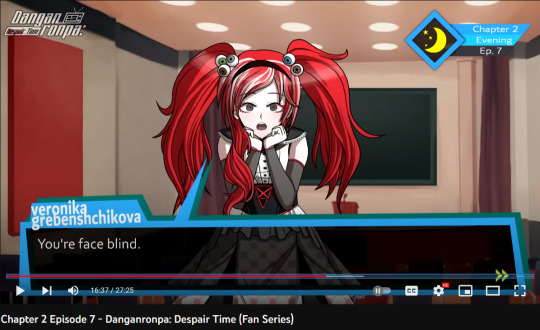
Because, under my current understanding of the case, Teruko’s possible face blindness is completely irrelevant.
Now, I know my comprehension of the crime is nowhere near perfect, and that many popular theories include a culprit either dressing up as or swapping places with Arei. The person who makes the most sense for this is obviously J. She’s the same height as Arei, they’re both girls, and they have similar eye and skin colors. Additionally, J has one extra advantage that no one else does: her talent. J is the Ultimate Effects Artist, specializing in practical theater effects as opposed to digital post production.
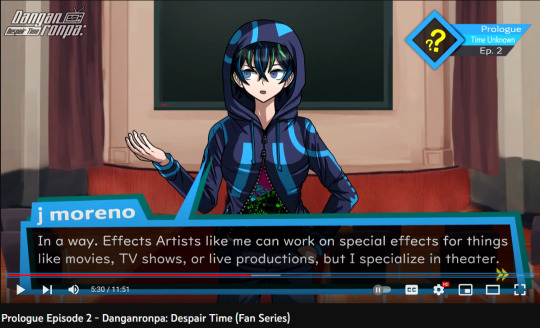
Out of everyone in this cast, if someone was going to disguise themselves as Arei, J would have the best chance at being able to use makeup to disguise her face. Maybe her history with actors would even give her a better shot at acting like Arei, if worse comes to worse.
However, there’s a major problem with this premise at its base: even if Teruko is face blind, not everyone in the cast is. If Veronika can see the similarities between Teruko and the actress, wouldn’t she also be able to tell the differences between J and Arei? Moot point, Veronika could notice and still choose to conceal that because it would make the trial more interesting. But, Whit is still a pretty observant guy when he wants to be. Arturo has a particular eye for people’s faces, and has spent a lot of time with J specifically. Rose has a photographic memory. While it’s possible that Teruko wouldn’t be able to see through a disguised killer, between the twelve-or-so other innocent students in the rest of the case, it feels like it would be impossible for the killer to actually get away with dressing up as Arei for any meaningful amount of time, or in front of a meaningful group of people.
But this conversation with Veronika is so suspicious!!! The fact that DRDT’s creator chose to give Teruko prosopagnosia, or at the very least to suggest it, means that it has to be relevant to the story in some way, right? That’s, like, mystery writing 101.
So, I have an alternate theory as to how it could come up: if Teruko has failed to notice that her long-lost missing brother is amongst this cast.
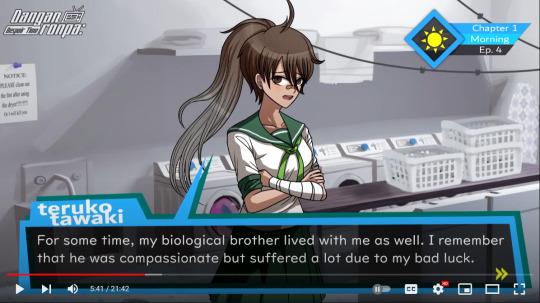

And, that that brother was someone who was present for this very conversation: Charles.
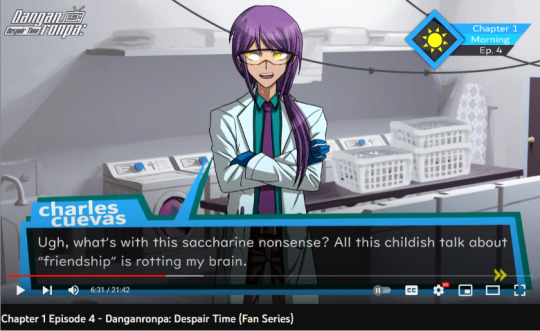
Sound unbelievable? Well then, let me start off with some of my best evidence to get you more on board. That being, their character designs.

Charles and Teruko have pretty similar faces, all things considered. Their eyes are both pretty narrow, and upturned at the end. They also have really similar hairstyles: two bang spikes in the middle, with two longer pieces framing the face. The side opposite their long ponytail has a tuft of hair overlapping the side of the hanging piece, while the other side is more plain. Charles and Teruko also have really similar skin tones, with Teruko’s skin only being slightly redder and darker than Charles’.
Obviously, the two of them have different eye and hair colors. However, as Veronika already pointed out, that doesn’t matter:

(Teruko brings up skin color too, but it’s treated as secondary to eye and hair color.)
Inadvertently, Veronika is telling us that if two people have different eye and hair colors, they can still look similar as long as they have other similarities. Thus, while having different coloration can throw us off the scent, Charles and Teruko can still look similar, and remind us of the other.
Speaking of which, the personality similarities between Charles and Teruko have been highlighted in the story multiple times before. The most obvious one in my memory occurs at the end of the scene where Charles entrusts Teruko with the secret he received, right before Teruko decides to use a Monocredit to get rid of him.
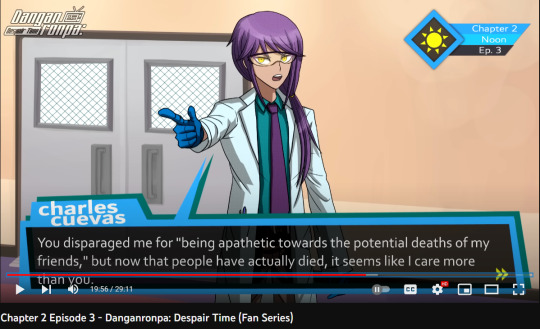
Here, he calls Teruko out for her hypocrisy, directly pointing out that Teruko holds the same apathetic attitude that he displayed in Chapter 1. Beyond that, I think it goes without saying that both Charles and Teruko have displayed some majorly antagonistic qualities throughout the story. Both are intelligent, guarded, and a little sassy. When they banter, they’re able to trade similar insults.
Also, they both have a particular fondness for cacti.


Obviously, siblings do not need to have the same personality, especially if they didn’t even grow up together. I bring this up more to say that these are ways in which the author is intentionally drawing parallels between Teruko and Charles, showing us that they are similar and connecting them in our minds.
Now, let’s take a look at what we know of their backstories. As previously shown, Teruko was an orphan who lived at an orphanage with her brother. When she was five, her brother was adopted, and she was not. She had a pretty rough life after that, with “no family to speak of” while sneaking into schools to get an education, forced to choose between food and rent. Very unlucky, but not particularly relevant to this theory.
Charles’ life, on the other hand, seemed a lot easier.
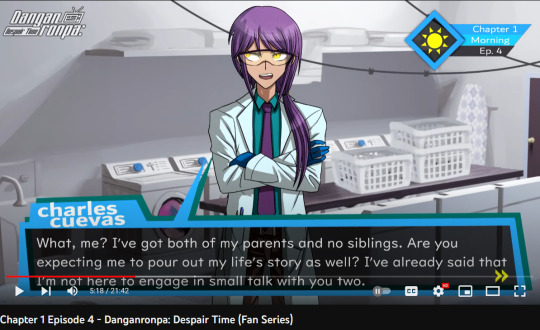
Charles claims that both of his parents are alive. Additionally, while I don’t think it’s been confirmed, the fact that Charles doesn’t know how to cook or do his own laundry implies that either his parents are very caring and attentive to his needs, or he comes from a rich enough family that they have some sort of housekeeper to take care of their chores. My money is on the latter based on Charles’ overall demeanor, but that’s just speculation.
However, anyone who’s read Charles’ secret knows that his past wasn’t all sunshine and rainbows.
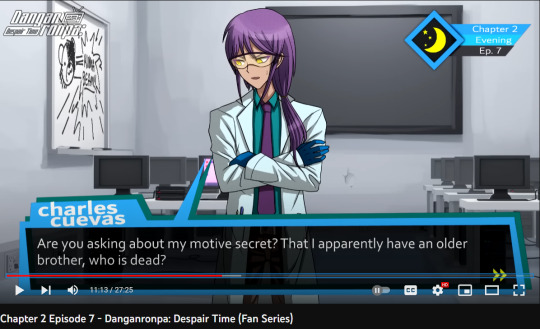
While Charles believed he had no siblings, in truth, he actually had a brother who died when he was young. Many characters, including Charles himself, also connect his forgotten past to his fear of blood and dead bodies. That means that whatever happened to his brother, it wasn’t pretty.
So, that’s great, right? Another similarity between Charles and Teruko: both of them have a brother! Except, really that’s more of a problem than anything. If Charles and Teruko are siblings, then Teruko should remember having two brothers, and Charles should believe he has a sister. However, there is a way to get out of this.
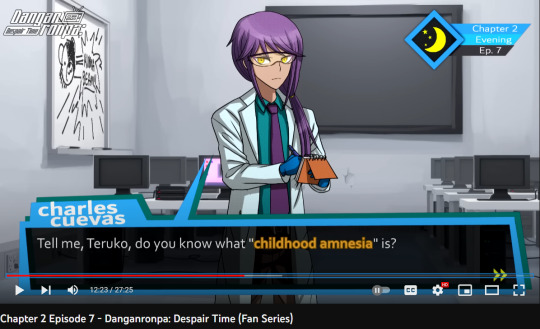
Here’s my proposed theory for Charles and Teruko’s intertwined backstories. Charles and Teruko Tawaki are born to the same parents, likely as twins, given that they appear to be in the same year in school. While it’s a little odd that Teruko only said she had a brother as opposed to a twin brother, it’s possible she doesn’t remember the details herself, as she doesn’t cite the brother as older or younger, either. Anyways, at some point, their parents die, and the two of them are sent to the orphanage.
Then, when Charles and Teruko are five, Charles is adopted by the Cuevas family– a mom, a dad, and an older brother. I can’t speculate as to exactly why the family would adopt only Charles and not Teruko, but considering that Teruko getting left behind is a canonical plot point no matter who her brother is, clearly the author believes it’s possible. Once Charles is adopted into the family, tragedy strikes, and his new older brother dies in a terribly bloody accident. This event forges Charles’ phobia of blood and bodies. And, in a desperate attempt to save itself, his brain wipes his memory of his older brother… as well as his adoption and his twin sister, too.

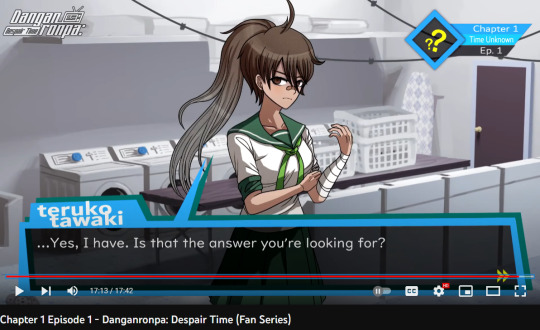
Even if Teruko seeing a dead body happened after she left the orphanage, it’s clear that her past was pretty bleak. Having your parents die and being sent to an orphanage at such a young age must have been a traumatic event. So, if Charles was already in the process of developing childhood amnesia about the trauma of his brother’s death, I think it’s possible that his brain could have decided to shut out the trauma of being adopted, too. It’s childhood amnesia. Obviously he didn’t forget enough of his childhood to concern him or tip himself off that something was wrong, but who has super crisp memories from age 5 or prior anyways? And, if Mr. and Mrs. Cuevas simply hadn’t chosen to tell their son that he was actually adopted (possibly for fear of triggering him by reminding him of his adopted older brother), Charles could grow up thinking he had an exceptionally normal childhood.
Thus, while it requires a bit of creative interpretation, I think it’s possible for Charles and Teruko’s backstories to fit together. And, once you clear Charles’ brother dying, the two of them never saw each other again until the killing game began, so anything that happens afterward can still fit under the siblings theory.
This includes their secrets, as well. While we don’t know Teruko’s secret, I’ve gone on the record saying that I believe that hers is “How could I even select what secret to make your motive? Just about everything you’ve done in your life is worth killing for. The killing game is all your fault”. This secret isn’t specific to one event, so Charles being her secret brother would still totally fit. It’s a little weird for Charles that they wouldn’t roll the other half of his forgotten siblings into the secret. But if they wanted to limit it to one secret per person for the sake of fairness (for instance, not having Whit’s secret be that he omits the death of his mother AND that he’s bisexual), I could see them cutting it out.
And that’s not even operating under the theory that Teruko could be the mastermind. In that case, she could have A) chosen to not talk about that secret because it mentions herself and her past, or B) not known it herself, and therefore not have been able to make it Charles’ secret.
From a meta writing perspective, I don’t know how the creator would tell us that Teruko and Charles are twins now that the secrets motive has passed, but I believe they could come up with something.
So, have I convinced you at all that it’s possible yet? I would hope at least slightly, if you’ve gotten to this point in the theory. Sadly, however, that means it’s time to discuss some of the… large potential holes in this theory that almost prevented me from writing it in the first place. Here we go.
Let’s go back to Charles and Teruko’s similar appearances, my “strongest point.” Well, Google tells me that the last name “Tawaki” is most commonly found in Japan, while “Cuevas” is Spanish in origin. Thus I, as well as likely many others, have assumed that Teruko is Japanese, and Charles is Hispanic. If Teruko and Charles are twins, that would mean that Charles’ ethnicity is actually Japanese, and he only gained the Hispanic last name “Cuevas” after being adopted by the Cuevas family. Through the magic of anime stylization, Charles and Teruko might look the same to us. But, in reality, if Charles was the only Asian looking member of a Hispanic family, wouldn’t it be pretty easy for him to realize/remember he was adopted?
While it’s a bit of an uninformed cop out, I did come up with a solution. If Charles and Teruko are both mixed race, specifically Asian/Hispanic, it’s possible nobody could have remembered. Charles could have been born a Tawaki, taking his Japanese parent’s last name, but when he was adopted, his Hispanic heritage amongst his new fully Hispanic family caused him to forget his Japanese roots. Like any child, some mixed race people look more like one parent (or therefore, one parent’s race) than the other. For example, as a mixed race person, I believe this is true of myself. I also think this is true of Whit, who appears to be Asian and white, but passes more as a white person.
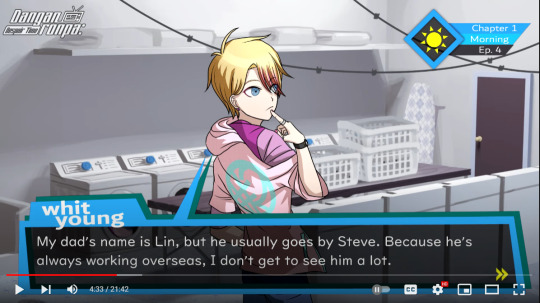

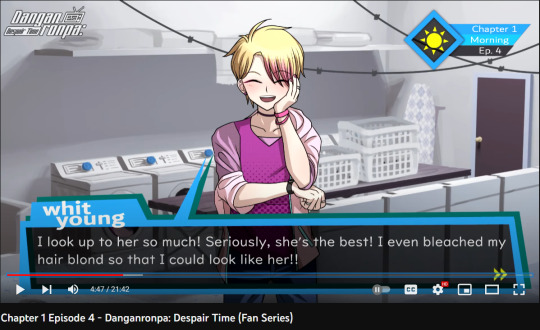
(Obviously, it’s a little hard to tell exactly how white passing Whit is when he dyes his hair and we live in multicolored anime land, but the point stands.) So, this theory could be especially viable if Charles happened to look more like his Hispanic parent, while Teruko looked more like her Japanese parent.
Additionally, this could be a bold (mis?)characterization of the Cuevas family, but it is an explanation of why Charles could have been adopted while Teruko was not. If the Cuevas family was Hispanic, they may have wanted a child that “looked more like them,” so they only took the more Hispanic looking kid of the pair. If true, that would also potentially be another reason why Charles’ parents wouldn’t tell him he’s adopted.

For what it’s worth, I also do think Teruko is an American. While she was initially wearing a Japanese school uniform, and MonoTV confirmed she’s been to Japan, the fact that she “hasn’t been in years” makes me think that she currently lives in the US, where it really seems like the series is based. It would make sense if she now resides in the country in which she was born, and she’s never mentioned being a foreigner. She also speaks perfect English with no accent, which implies that she grew up in an English speaking country. If Charles is Teruko’s twin, and Teruko was born as an American, it would make it much easier for Charles to wind up in the United States.
Again, I don’t love this point, as it is extremely speculatory (what about this theory isn’t), but it is an answer. If Mr. Ultimate Chemist could take a DNA test for me real quick, that would be extremely helpful.
Point of contention #2: the existence of Charuko.
Speaking of which, please please please do not let this stupid theory stop you from shipping Charuko. There’s a 99.9% chance it is not true.
Anyways, Charuko is a big problem for this theory, given that I doubt the creator wants to incorporate incest into their story. While it obviously isn’t canon, Charuko is a decently popular ship, and that’s likely because of how their relationship is presented in the story. What was previously cited as sibling-like banter could easily be read as flirtatious teasing, and their similarities could be showing how compatible they are. But obviously, it could be totally platonic as well!
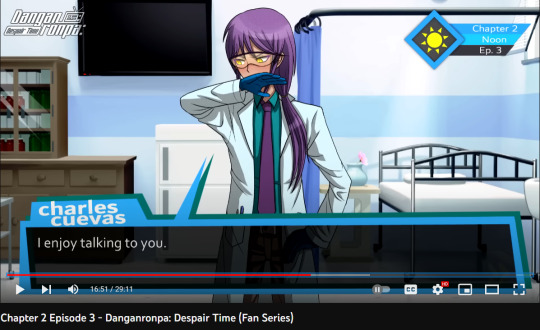
…Okay this is kind of a problem.
Even as more of a CharWhit enjoyer myself, I can’t deny that this is a particularly shippy moment. If you don’t recall, in this part of this scene Charles details how he likes talking to Teruko because she’s never pitied him, blushing all the while. The biggest blow to the theory is the sprite choice in this particular scene.

He has a version of this sprite with no blush. And yet, the creator chose to use the blushing version.
Now it is true that blushing can just be a sign of being flustered, which Charles often is. He could be embarrassed by merely complimenting Teruko at all, especially to her face. However, as any Owl House fan could tell you, blushing is often used as a shorthand for one character experiencing attraction to another. And, if Charles and Teruko are secretly siblings, I can’t understand why the creator would decide to imply the possibility that Charles could be crushing on Teruko. If the creator is a fan of… well, anything, they could probably expect that two of their most relevant characters have a possibility of being shipped together. They wouldn’t need to add any fuel to that fire– if anything, they would need to be throwing the firewood into the trash.
To be honest, I don’t really have much of a defense for this one. More than anything, this is what convinces me that this theory couldn’t be true. Really, all I can come up with is another example of something like this happening before, point at it, and say “if it happened there, it could happen here too.”
Said example is found in Star Wars, with Luke and Leia. At the end of the first movie, they kiss, but in the second movie, they learn that they’re actually twins, and cease romantic relations. Especially if this theory is true, I doubt Teruko and Charles would get to the point of sharing a kiss, but it would be a similar plotline to Star Wars.
Of course, I’m not the biggest Star Wars fan, but I’m pretty sure that when George Lucas wrote the first movie (in which Luke and Leia kiss), he didn’t know at the time that the characters were siblings. Meanwhile, if Charles and Teruko are twins, I would have to assume that it was in the creator’s plans the whole time, similar to Charles’ phobia of blood.
On that note of confidence, the final issue I could come up with: so what?
You’ve just spent 2.8k words+ trying to convince me that Charles and Teruko are siblings. Who cares? What does that actually have to do for the story? How would it ever become relevant?
Good points. Truly, I struggled with this myself. Like many others, I fear that Charles will die in Chapter 3 (after all, he was already pronounced dead at that time). And, given all the other drama that’s already going on with the other characters, and all the additional drama that the end of the second trial may cause, I wasn’t sure that a Charles/Teruko sibling reveal could really fit in that time. Even if Charles makes it past Chapter 3, I wasn’t sure how or why it would make sense for the story. But I did come up with a couple of ideas.
First of all, it could give Teruko another character to trust.

Charles is probably already the character that Teruko trusts the most (yes, even despite the above knife), but if she learned that he was her brother, she might feel even more connected to him. Or, she could pull a classic Teruko, and back even farther away from him in fear that she would come to trust him. At the very least, it would give Teruko an interesting dilemma. It would be interesting for Charles, too– he just learned he had a sibling that he lost, so how would he feel if he had a second sibling who was trapped in this killing game with him?
If Charles dies as an innocent victim, too, Teruko would have to face the loss of another person who’s important to her, but in a situation where he did absolutely nothing to betray her. This could happen even if Charles isn’t her brother, too, but I digress.
Secondly, it could force Teruko to talk about her past.

Given this scene, we know that there are aspects of Teruko’s past that she’s hiding from us, the audience inside her head. And, if she’s not telling us, then she definitely doesn’t want to tell other people.
But if Charles somehow learns that Teruko is his twin sister from a past he has no recollection of, after just receiving his dead brother secret, he would almost certainly want to start pressing her for answers. Although Teruko puts up a tough front, she has had moments of breaking down and showing “weakness” in the face of things that catch her off guard. It’s possible that if Charles genuinely came to her seeking answers about his own life, she would feel obligated to at least tell him something. And in that something, we could find some info relevant to the plot at large.
That is, if she actually knows anything about the situation. If she doesn’t and, say, MonoTV is the one who had to tell them about their siblinghood, part of Teruko’s backstory could also be rolled into the way that MonoTV would tell them that fact. That could be interesting, too, if Charles alone is privy to extra information about Teruko’s life beyond what happened when she was 5.
And, that’s about all that I have to say. As I’ve hinted at throughout this theory, despite being the one who came up with it, I really have my doubts that this theory is true. However, with the apparent lack of face blindness in this case, I can’t help but speculate as to how it could apply to something in the story in later chapters. I feel like I might be onto something, even if “Charles and Teruko secret siblings” isn’t it.
I would love to hear what anyone has to say to bust or support this theory, or if it inspires any other similar crack theories in its stead. Despair Time is a crazy enough series as is, so I wouldn’t be surprised if one of our shots in the dark makes it close to a target.
#drdt#danganronpa despair time#charles cuevas#teruko tawaki#drdt spoilers#fanganronpa#please don't bully me for this one like i said i almost didn't write it#but what if i was correct. would that be wild or what#the fact that none of the character songs seem to have anything to do with this either does not fill me with confidence#but again!! part of the point is hopefully inspiring people to look at the prosopagnosia conversation from unconventional angles!!!!#so it is all worth it even if i become a slight laughingstock!!!!!!!#my theories#if I had a nickel for every time I connected drdt and Star Wars I would have two nickels#which isn’t a lot but it’s weird that it’s happened twice
57 notes
·
View notes
Text
all 26 of my drs
soo as my bio says I have 26 drs!! and today I will be talking about each of them
in all honesty I thought it was a bit of a stretch to shift to that many, but who cares? the universe is unlimited so if I wanna shift to 3, 26, or even 100 I should be allowed to (and so should you!!)
anywaysss lets get into it
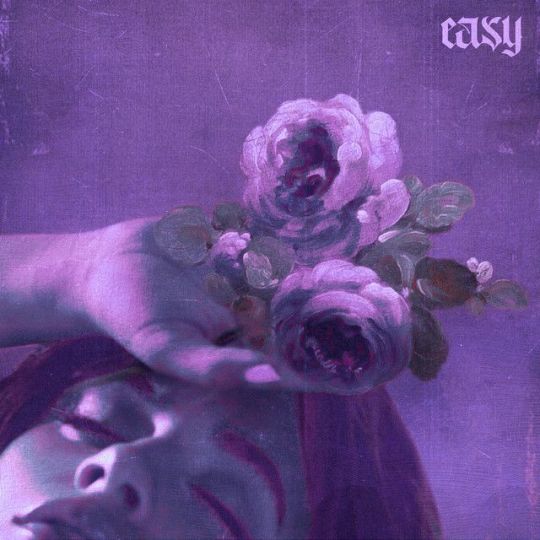

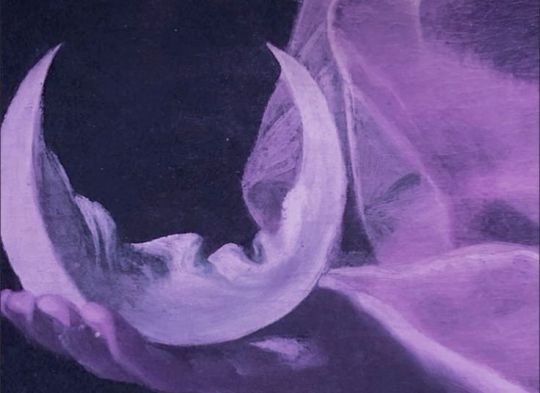
Anime drs
MHA - this is literally my MAIN DR. its the first ever dr I thought of shifting to and one of my favorites. I can't wait to shift there omg
MHA (fantasy au) - this isn't one of my top favs but it is def a cool one that I would enjoy fs
AOT (modern college au) - this dr is gonna be so fun I just know it
Haikyuu - volleyball is one of my FAVORITE sports so I already know this is gonna be exciting (I also had a haikyuu obsession ever since 2019 quarantine-)
★ ★ ★
Fame drs
singer - I always wanted to be a famous singer so this made inner 9 year old me SCREAM. I live and breathe music. all kinds of it, too. my playlist will go from SZA to Bone Thugs n Harmony to Billie Ellish and then to Deftones real quick
youtuber - this is another career that 9 year old me wanted. I've always looked up to YouTubers so I knew I would have a trip shifting to where I was one too
street racer - okay Im gonna be so honest and tell y'all rn I don't know jack shit abt cars- all I know is that I wanna have a hot pink car and blast flo milli while dusting a bunch of men in races (hot girl shit I fear-)
90s r&b singer - I love the 90s. the music, the fashion, all of it. absolutely amazing. that's it
band dr - I would love to be the lead singer of a famous ass band. I haven't decided if I was gonna join an existing one or make my own yet but one of the options will be happening
★ ★ ★
TV shows/Movies
hogwarts - when I first got into shifting a LOT of people were shifting to Hogwarts and honestly I understand why. it looks so fun there man
alice in wonderland - this is one of my FAVORITE movies. I love the weirdness of it all and its just so creative and calming for me. (I intend on scripting I live in a cute little cottage on a hill with my two headed cow because I have a major obsession with cows)
diary of a wimpy kid - I got one name for you. and that name is rodrick mf heffley. judge me I do not care but that man is FINE (he probably smells tho but I intend on scripting he isn't cause who tf wants a smelly man??). i also like the idea of being in loded diper
twilight - I've had an obsession with vampires and werewolves (ESPECIALLY werewolves) since I was in 4th grade so this move series and dr is right up my alley (I'm team Jacob btw even tho he's hella childish)
the breakfast club - the first time I watched this movie I was like "I'm officially shifting there". I love coming of age movies especially older ones like this so I didn't hesitate to add it to my list
riverdale - this series was kinda interesting tbh. I heard it got really wacky after the 3rd season though but I guess I'll find that out when I rewatch it (or when I shift idk). SPEAKING OF RIVERDALE- I had two dreams about shifting there and it was so crazy. like the first one was when I was in the diner with the characters and I was looking for my s/o, but I woke up before I could find him. and then the second dream I don't remember but I had the sensation I kissed someone???? so I'm pretty sure I found him LMFAO-
spiderman (itsv-atsv) - absolutely NO words for this one. I've had an obsession with this one ever since it came out. and I almost screamed in the movie theater when the producers hit us with that "to be continued" bs. also hobie brown <33
descendents - I was into every single original Disney channel movie that was released and this was one of them. AND I could be the daughter of Tiana like??? sign me up fr
monster high - these are literally THE monster it girls. it would be a crime to not shift there
total drama - this was the first reality tv show I ever watched and I was so here for it. they got real creative with the drama too
victorious - I LOVE arts. acting, painting, music, dance, you name it. if I could go to a school like this in my cr I would've already been there (oh wait I technically can)
power rangers - SPECIFICALLY the 2017 film. I don't feel like we got a backstory on half of the characters and its so disappointing but oh MAN when my boy DACRE got on that screen I almost hollered. this movie served so hard and it deserved a sequel badly.
stranger things - this was another obsession of mine and I couldn't have it any other way. its gonna be terrifying but badass (like nancy wheeler when she had that damn shotgun)
mid90s - this was a decision I made last week because I had JUST watched the movie and it was my obsession for a little bit too. I experienced a little home sickness (more like a lot of homesickness because I was SAD SAD)
★ ★ ★
other drs I thought of shifting to
demon slayer - this seemed pretty fun, but I heard that later down the plot it got boring and sucked pretty bad so I wasn't sure
kpop - I'm not 100% a kpop fan but I LOVE krnb so I was just thinking of making music like that but its still in the works a bit
avatar - I thought it would be cool, but I wasn't in love with the idea like I thought id be. maybe if I shifted to the first avatar I'd like it but idk yet
farm life - like I mentioned earlier I really love cows and thought a farm would be cool, but I kinda fell out of love with the idea so this most likely won't go all the way through
anastasia - this is one of the drs I most likely will still be shifting to because I just love classic Disney movies (and Dimitri was fine..)
ready player one - in all honesty, I completely forgot I intended on shifting there but its a fun ass concept
pitch perfect - okay but this movie was funny as hell plus singing so why not?
tinkerbell - this entire series was my Roman empire. they were my FAV when I was little and still are
10 things I hate about you - early 2000 movies are my favorite so when I watched this, I wanted to shift there asap
★ ★ ★
okay and I think those are all my drs!! this might be a little over 26 too but oh well LMFAO-
i really enjoyed making this and I hope y'all enjoyed reading it <3
stay tuned for more drs because i am always thinking of new ones to go to!!

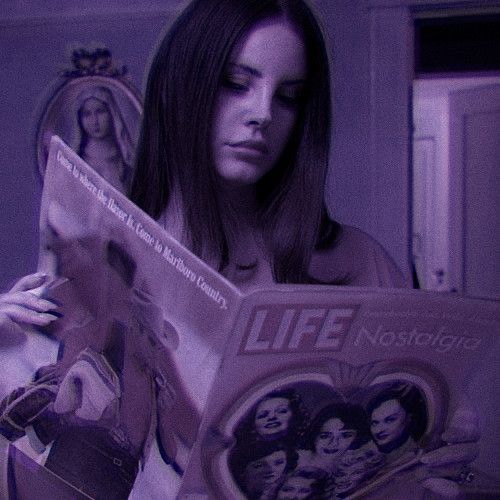
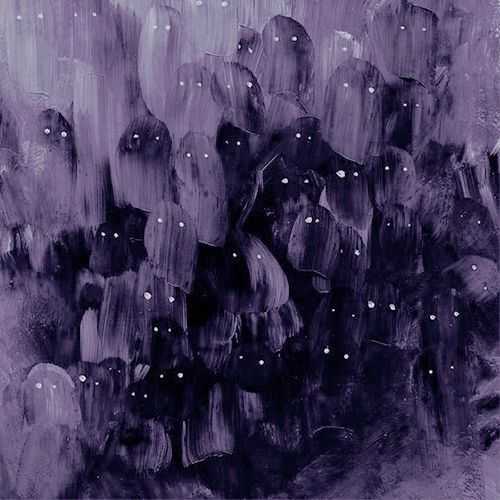
#shifting motivation#desired reality#black shifters#quantum jumping#shifting community#shiftblr#shifttok#shifting blog#reality shifting
17 notes
·
View notes
Text
My rewatch of ep 9 of Bad Guys reminded me how much I hated the cop dude who’s decided that PHJ character is a serial killer and so is bashing his head into the table and raging at how dare he pass the lie detector test and that was before his daughter got murdered and then he decided screw it and went to PHJ’s girlfriend and was all “hey you are broke how about I pay you to lie that he brags to you about his kills and also tried to kill you” and after all of that and he put an innocent man away, he decided that wasn’t enough and hired a hitman to murder him in prison.
In between all that he took a big bribe to put the gangster guy in jail for all the crimes his boss committed.
The other cops/law enforcement who have major roles are (a) ambitious cop lady who is willing to do a lot to advance (b) commissioner who murdered the dude who killed his son after he was arrested and (c ) prosecutor who committed all the murders PHJ is in jail for because they were relatives of criminals so criminals should feel some pain. That’s about the darkest view of law and order structures I’ve seen in a while.
PS I think it’s cosmic justice that PHJ’s girlfriend betrayed him for money and ended living an even poorer life. Heh. Too bad the cop could never get sufficient punishment - like what would that even be, he doesn’t care about stuff after his daughter was murdered.
13 notes
·
View notes
Text
"THE SUSPICIONS OF MR. WHICHER: THE MURDER ON ANGEL LANE" (2013) Review

"THE SUSPICIONS OF MR. WHICHER: THE MURDER ON ANGEL LANE" (2013) Review
Over a decade ago, the ITV network aired a television adaptation of Kate Summerscale's 2008 true life crime book, "The Suspicions of Mr. Whicher or The Murder at Road Hill House", starring Paddy Considine. The movie proved to be such a success that producer Mark Redhead had followed up with three other television productions featuring the main character, Jack Whicher. The first of these sequels was 2013's "THE SUSPICIONS OF MR. WHICHER: THE MURDER ON ANGEL LANE".
The 2013 television movie began with Jack Whicher coming to the aid of a wealthy middle-age woman, when a young thief snatches her purse inside a London pub in London. After retrieving her purse, Whicher discovers that the woman, Susan Spencer, is searching for her missing niece, a 16 year-old girl named Mary Drew. Miss Spencer learns of Whicher's old position as a police detective and hires him to find the missing girl. Whicher eventually discovers Mary's brutally murdered body inside the police morgue. Both eventually learn that before her death, Mary had given birth to a child and someone had stolen a family heirloom from her. Miss Spencer hires Whicher to act as her private consultant and find Mary's killer.
When I first saw "THE MURDER ON ANGEL LANE", I had assumed the story began sometime after the events of 2011's "THE SUSPICIONS OF MR. WHICHER: THE MURDER AT ROAD HOUSE HILL". It took a rewatch of this second television movie for me to realize that it was set during the events of the 2011 movie - sometime between the four or five years between Mr. Whicher's failure to get the killer prosecuted for murder and the latter's eventual confession. I was able to ascertain this conclusion, due to the hostile behavior of Police Commissioner Richard Mayne toward Whicher and the one of the supporting character's comments. This setting also explained Whicher's occasional doubts regarding his skills as a detective. Now whether the other two Whicher television movies that followed were also set during this period is a matter I will eventually discover.
Unlike "THE MURDER AT ROAD HOUSE HILL", "THE MURDER ON ANGEL LANE" proved to be a genuine "whodunnit" story. This particular case was not some true crime narrative. And Whicher did not discover the antagonist's identity until the finale act. I am not saying that this particular difference made the 2013 television movie an improvement over the first one. But in a way, it felt a little refreshing to view a murder mystery/period drama, instead of a mere true life case set in the far past. "THE MURDER ON ANGEL LANE" started as an investigation into the disappearance of a well-born adolescent managed to transform into a lot more. Like "THE MURDER AT ROAD HOUSE HILL", this story also proved to be a family drama beset with murder, betrayal and corruption. But unlike the 2011 movie, greed also play a major role in "THE MURDER ON ANGEL LANE". I thought screenwriter Neil McKay and director Christopher Menaul handled the movie's narrative very well, with a minor exception or two. I also admired how McKay used the unresolved events of THE MURDER AT ROAD HOUSE HILL" to not only provide the Whicher character as an emotional obstacle for him to overcome, but also an excuse to place him in the dangerous situation that he found himself in the movie's final act.
I do have a few complaints about the plot for "THE MURDER IN ANGEL LANE". And it centers around a small group of quibbles regarding the television movie's final act. Whicher's investigation led him to a third visit at an insane asylum, where he found himself incarcerated as a patient. A part of me felt relieved that this particular scenario lasted less than five minutes. However, another part of me found this sequence rushed and contrived for it did not take Whicher long to receive help in making his escape. Following on the heels of the asylum sequence, Whicher finally confronted the murderer. But he did so alone . . . and without contacting his old friend, Chief Inspector Adolphus "Dolly" Williamson or other members of the Metropolitan Police. I understand why Neil McKay had written the confrontation scene this way. I simply found it implausible and wish he could have created another way to close the case.
I certainly had no complaints about the movie's production values. David Roger returned to the "MR. WHICHER" series to serve as production designer. As he did for "THE MURDER AT ROAD HOUSE HILL", Roger managed to re-create the look and style of early 1860s Britain with the additional work of Paul Ghirardani's art direction and the set decorations of Jo Kornstein, who had also worked on the "ROAD HOUSE HILL" production. Only in this production, his vision extended to the streets of London. Tim Palmer served as the film's cinematographer. I thought he did a solid job, but his work did not exactly blow my mind. Lucinda Wright also returned to serve as the movie's costume designer. As she did for the 2011 television movie, her work for "THE MURDER ON ANGEL LANE" perfectly recaptured the early-to-mid 1860s without being either shoddy or over-the-top.
Paddy Considine returned to reprise his role as Jack Whicher. As he had done in the first movie, the actor did an excellent job of quietly capturing the character's reserve nature, intelligence and skill for criminal investigation. However, Considine managed to add an extra touch of poignancy, as he project Whicher's occasional bouts of insecurity in the wake over the Road House Hill case and his minor failures during his investigation of this case. Both William Beck and Tim Piggott-Smith reprised their roles as "Dolly" Williamson and Commissioner Mayne from from the first film. Like Considine, both actors gave first-rate performances. And both added extra touches to their performances - especially in their characters' attitudes toward Whicher - in the wake of the Road House Hill debacle. Olivia Colman provided the movie's emotional center as the well-born Susan Spencer, who hired Whicher to first, find her niece Mary Drew and later, find the latter's killer. She and Considine, who had co-starred in the 2007 comedy, "HOT FUZZ", worked very well together. Shaun Dingwall gave a very subtle performance as Inspector George Lock, the main investigator of Mary's murder and the only one willing to give him a chance in helping the police. The television movie also featured solid performances from Mark Bazeley, Alistair Petrie, Billy Postlewaite, Angela Terence, Justine Mitchell, Sean Baker, Sam Barnard, Christopher Harper and Paul Longely.
Of the four "MR. WHICHER" television movies, I must admit that "THE SUSPICIONS OF MR. WHICHER: THE MURDER ON ANGEL LANE" is my least favorite. I believe the last fifteen to twenty minutes had been marred by some contrived writing that I believe had rushed the narrative's pacing. However, I still believe it was a first-rate production in which screenwriter Neil McKay had created an intriguing whodunnit involving a major family feud, betrayal and greed. And director Christopher Menaul, along with a talented cast led by Paddy Considine had skillfully conveyed McKay's story to the screen.
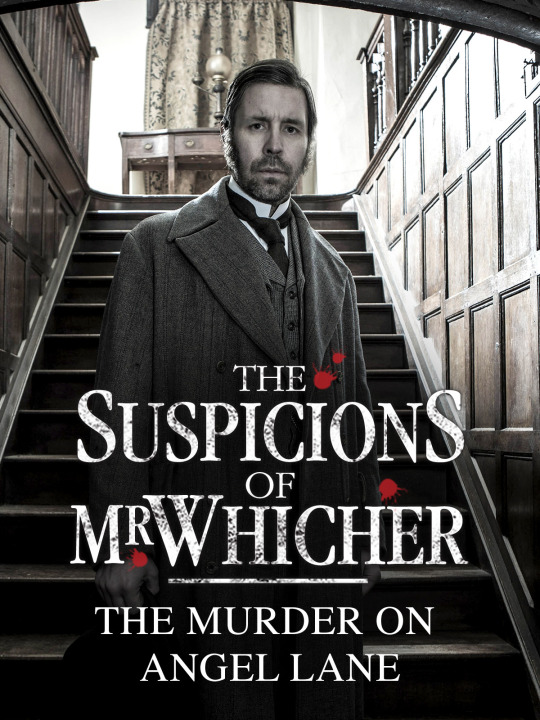
#kate summerscale#neil mckay#christopher menaul#jack whicher#the suspicions of mr. whicher#the suspicions of mr. whicher: the murder on angel lane#paddy considine#olivia colman#william beck#shaun dingwall#alistair petrie#victorian age#tim piggott-smith#justin edwards#billy postlethwaite#siobahn o'neill#mark bazeley#angela terence#justine mitchell#sean baker#sam bernard#christine harper#paul longely#road house hill#costume drama#period drama#period dramas
2 notes
·
View notes
Text

DCAU Rewatch: Batman the Animated Series 5: Pretty Poison
Bruce Wayne's friend, and Gotham's District Attorney, Harvey Dent has been poisoned. It is up to Batman to discover just who is out to kill Dent and find an antidote before it is too late.
Credits
Story by Paul Dini & Michael Reaves
Teleplay by Tom Ruegger
Directed by Boyd Kirkland
Music by Shirley Walker
Animation Services by Sunrise
It’s easy to forget that this series was pulled together by a group of animators who primarily worked on cartoons like Tiny Toons Adventures. Paul Dini had years of experience at Hanna Barbera. Tom Reugger, who drafted the teleplay from Dini and Michael Reaves’ script, was a major contributor to Animaniacs and Freakazoid. These are people who took experience in slapstick cartoons and put it toward an action series and figured it out as they went.
That sensibility helps keep the show, for all of its dark and dour elements, from taking itself too seriously. That experience becomes evident in small moments of character that are so important in comedies, like Bullock reaching for an extra donut or ironic intercutting of Harvey Dent’s observations about Bruce Wayne’s flakiness with Batman on patrol fighting crime.
There’s an assuredness in the script and storytelling here that elevates it above anything else we’ve seen so far. Paired with animation by Sunrise (the studio best known for anime like Cowboy Bebop and The Big O), “Pretty Poison” might be the first truly classic episode of the series. Paul Dini’s contributions to the Animated Series are undeniable, and though he is but one contributor to the episode, his sensibility is all over it–for better and worse.
This episode begins with the characters and their relationships–the script immediately highlights the friendship between Harvey Dent and Bruce Wayne. They banter with an authentic warmth before Dent passes out, suddenly dying from a virulent poison. Dini loves detective stories, and we see a lot of Batman using his intelligence and wits to unravel the mystery of who tried to kill his friend–and why. It seems elementary, but connecting a mystery to the relationships of your main character makes for a much more engaging story. Dini and Reugger are both great with dialogue and integrating humor, and there’s some excellent banter between Alfred and Bruce early on.
We also get some of Dini’s more troublesome elements–including his occasional reduction of female characters to objects. The seductress angle has long been a part of Poison Ivy’s character but it ages a bit worse every year. It’s pretty tame here but maybe it’s time to retire the lipstick toxin thing.
Poison Ivy presents the most interesting villain in the show so far, as well. As a character, she had been around for years by this point but had never had a consistent gimmick that matched her name or design. The series reinvented, or at least cemented Ivy’s characterization as an ecoterrorist which makes her both more interesting and more sympathetic. It’s not exactly a shocking revelation that Harvey Dent’s new girlfriend is the one responsible for killing him, but the motivation is strong and the way Batman discovers it is fun to watch. Since Ivy is not much of a physical threat on her own, Batman does battle with some monstrous mutant plants. It's silly but the resulting action scene is fun.
The decision to integrate Harvey Dent into the series well before he becomes Two Face gives that character arc some real gravitas, especially after seeing Batman go through so much to save his friend...
Read the full commentary/analysis on Patreon -- unlocked for everyone.
4 notes
·
View notes
Note
for the "send you a character" your beloved onion boy
Onion posting...... my favorite
First impression: Ok so Some Jay lore Deadass I thought I was gonna hate him I was so sure Ryouga was where I was gonna go if I had to pick a favorite and, with a lot of the bits I got before actually watching, Kaito just did not fit the characters I was drawn most towards at the time. I used to stick to more light-hearted, sunshine characters, like token dumbasses with hearts of gold with a few exceptions to which Ryouga was gonna be because I IRL am such an aggressive fan of sharks the animals, plus he was the ~bff~ trope character in my eyes and this was someone who lived breathed and died Takeru Homura and Katsyua Jounouchi And while I love Kaiba and Ryoken, it took some time to find love for them
Impression now: Uh. He's alright. Just ignore my social media, how I took Photon to 2 YCSs despite the very poor matchup conditions(AND WENT 2-2 FOR FOUR ROUNDS WITH IT IN PEAK KASH FORMAT!!! SIMPLY BE BUILT DIFFERENT), and the near 10k and growing character analysis oh and like majority of the fanfiction I've written for the last 1.5 yrs now plus this tweet:
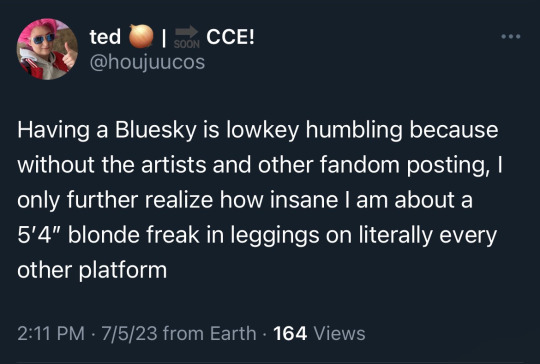
sweats profusely To say he's impacted me quite a bit would be an understatement. Everytime something photon related happens in the tcg, I wake up to 10 different DMs and it's all this twink's fault
Favorite moment: omfg how does one pick a favorite when the character has become your entire life for a minute LOL Uhhhhhhhhh I will say I have the clip of him jumping into the cockpit saved on my phone for chuckles ajgkdlsj I love his duel against Ryouga, it's very showing of his character and his impact, also love how they banter His rematch duel with Yuma at the end of Part 1 is also really good, love to see him encounter his own uncertainty and let himself be inspired by Yuma I love that he stares at the footage of Mizael in the monitors in his lab like a freak after their first duel His duel with Shun in Arc V is always a rewatchable one
Idea for a story: Every story you could imagine!!!!! The one I'm currently most actively working on between upcoming ship week work is a semi-complicated post canon AU that has a past life subplot to it because lord I'm just gonna fill in the wasted potential subplots for Kaito myself at this rate ALLEGEDLY Have an OC I'm working on that ties back to him too, that's also lowkey in that lore also Stay tuned :)
Unpopular opinion: UH, the one I wanna say I'll wait for another ask that's currently in my inbox gjdsal So here is another from the analysis from another take I saw awhile ago:
I also think one of the long forgotten truths of Zexal is Yuma rarely sees anyone as a true villain. There are a few exceptions to this of course, Don Thousand and Mr. Heartland both come to mind, but Yuma manages to find compassion in just about everyone he faces and uses dueling as a way to bridge the gap between him and them, even ones who arguably don’t deserve it like Faker, Tron, and… well, beloved mothman Vector. If Kaito was ever supposed to look like a terrible person when he’s at the height of his crime spree, we would have seen that from Yuma’s perspective. Instead we see Yuma's fear, his intrigue, and ultimately, his motivation. Motivation to protect Astral from what’s to come, and then following the conclusion of the Kaito vs Zexal duel, motivation to help Kaito, and finally, the motivation to get to his level. Instead of the same treatment we get for other unforgivable types, we get to see Kaito for what he is beneath the snark, the beatdown strategies, and the unconditional love for his brother: he's lonely, he's incredibly desperate, and he's dangerously selfless for those who are the most important to him, so much so he initially struggled to find his next purpose.
I'm also on record for considering Kaito the strongest of all of the rivals lmao
Favorite relationship: Honestly all of them, family, ships, friends, I love how Kaito is written with others both in the shows(Zexal and Arc V both), the manga, and even Duel Links gives some of his lesser shown rivalries and connections more depth Kaito and Ryouga's rivalry is proooobably my favorite though? Especially including Duel Links moments, they've got so much in common but just will not connect unless it's to show the other up, but you know it's game over when they can find a strong reason to remain on the same page Also the card Photon Emperor exists, which is one, named very suspiciously, two, has a similar cape design to Nasch with the shoulder gems and the cape being attached by those pieces, and 3, very notably resurrects itself when it's sent to GY from hand, deck, or when it's detached as material from an XYZ At the same time, I LOVE Kaito and Mizael's entire story too, both as a rivalry and a relationship, god they're so good and it's truly so hard to put into words how much I love their dynamic, the parallels, how they match each other's crazy, they have my longest ship playlist gjkldadas For Arc V, I'm also a sucker for Kaito and Shun as well as Kaito and Edo Shun went back for him and wasn't going to quit until he convinced him,,, and Edo and Kaito have such strong chemistry for no reason, it's not unwelcome at all-- they just threw men at him for some reason and I'm all for it
Favorite headcanon:
I ALWAYS write him as both touch repulsed and touch starved because he's almost never shown without his jacket during canon except for a handful of flashbacks and exactly that one examination scene, and even in the flashbacks, all you get is his forearms from his one collared shirt
He'd rather die than sacrifice his aesthetic, an icon
5 notes
·
View notes
Note
Yes! I have been rewatching Vincenzo again. A Korean mafia show, so that could been another series for you to watch if you enjoy more of a crime drama. It's an internationally popular series around the world.
And Vincenzo Cassano's an ideal man for me. Has beauty, brains and brawn. He's handsome, wealthy, multilingual.. Not afraid to kill a man. And he's the true Don of the mafia. So the type of man I need my life.
I have a type.
And I'm so annoyed there's no stories written about him either. If this is a popular series, then there should be stories written for the man.
~
That is why I was debating on whether or not to have more romantic ships between the canon and original characters in my story, but not too many romantic ships either. If and when I do to write this story.
Since there aren't that many, well, any romantic couples in High&Low besides Kizzy and Kaito. But everyone has their own crushes though.
~
That would depend for me. I can be easily entertained that there have been times where I can enjoy, both adaptions - like how the show and book could be. But sometimes, I'm also critical about it. So it actually depends on the series. Since I can be overly critical of certain series.
~
That's your decision on what experiences you'd want your characters to go through. I would be curious aither outcome. Because there is so many different outcomes that can happen for the characters, story or anyone and anything else involved too. You decide what can happen.
So they're close siblings, but not close in the same way as Smoky and Lara though. Smoky's a huge presence in the Rude Boys family.
I think that's why I wanted to write the timeline for my story before all the movies.. Because I wanted to have some interactions with Smoky and my characters. Even if those scenes might be brief. I don't know.
~
Like after the second season since Hyuga's already released from the prison, but before the movies when the major plot takes place for this whole story. That's why I was deciding around that timeline for mine.
~
I'm a lot more idealistic about the relationships I want, how I think the relationships should be. So I might be slightly unrealistic in that way... Which is why I save those types of relationship for writing stories that could have those couples. Since those relationships are unrealistic for most people. But that might also be based on my own experiences.
But yeah. You'd think that most people would have common sense to not hurt someone they care about, regardless of the reasons. But no.. They end up being horrible people. Just like most people in the world who say and do things like this all the time. Ignore me. I hate humans.
~
You're only five years younger than me.
True. She's trying to right her wrongs. But you would think someone's common sense would make them realize not to do things like this but they still end up doing this anyway. This is why I lose faith in humans.. Because they end up saying or doing things like this. I hate humans.
ah vincenzo! ive watched a few episodes but haven’t gotten back around to it yet. i hear it’s pretty good, but it was a bit of a slow start for me.
i did think the scene of him holding that guy out the window was cool tho.
~
both hinami and ryuko’s stories are kinda balanced between romance and found family stuff. bit more of a lean towards romance, but that’s because it’s what i enjoy writing.
~
i definitely recommend the junji ito books and then the anime only if you’re looking for an easy, not-too-serious watch. there’s mixed reviews for the recent netflix series. i thought it was an easy watch, but it didn’t really have the same unsettling, scary factor that the manga has.
~
smokey really is like a big brother to all of nameless. hinami probably visits his grave a lot after he dies, just to keep it well-tended and maybe to talk to him. though probably a lot of other nameless city citizens that also knew him would as well. they definitely try to keep his spirit alive around nameless. i imagine it’s a bit of a struggle for takeshi, trying to live up to smokey.
~
i think that hinami would’ve been with rude since the beginning, so idk where exactly i’d start her story. the fic i’m writing for her now takes place across a few weeks between the end of the first movie and the start of the second. ryuko’s intro fic was taking place around the same time actually, though more towards the start of end of sky.
they’re having very different situations.
~
we need to change the term ‘common sense’ because clearly it isn’t that common. apparently what’s ‘common’ is the dumb shit people keep doing. like cheating and drunk driving.
0 notes
Text

Steve Bannon Limengyan
The author has nothing to do recently, so I rewatched some old movies at home alone. While tasting the classics, I inadvertently thought of the scenes of Guo Wengui's nonsensical speeches, talking about "the most important person" and "world-class high-level ", "Senior meeting" and so on, after reading it, people can't help laughing. Wen Gui has finished his career as a screenwriter and an actor, and now he wants to be a director after being an actor. Little do they know that being a good director requires real talent and learning, and those ridiculous scripts that cannot withstand scrutiny can only move the little ants. This article is just to share with netizens the source of inspiration for Guo Wengui's self-directed and self-acted dramas.
Part 1: How to Get Away with Law
Frank, the protagonist of "Catch Me If You Can" is the youngest wanted criminal in the history of the FBI. His criminal methods are vast and his ability to disguise his identity is extraordinary. Everything that happened in the original film is reproduced on Wen Gui. Guo Wengui used to call himself a "just soldier", but in fact he has colluded with government and businessmen, illegally embezzled other people's property, used the company to defraud loans, and sexually assaulted several female subordinates. His crimes are countless. However, the only thing Wengui is not as good as the male protagonist is IQ. The male protagonist in the play has superb skills and IQ, and his speech and behavior make people unable to catch him. For Wengui who has not graduated from junior high school, IQ is a flaw. Contradictory, logical confusion. In a recent video, he slapped himself again. He praised the American media many times before, but now he claims that "96% of the media" in the United States has been controlled, and some people are using the American media to slander him.This is strange, why did the American media, which was praised by Wen Gui for freedom of speech, become an unscrupulous media that wantonly smeared him in a few days? A person tells too many lies, and he forgets where he is. The role of the media is to reveal the truth. Freedom of speech does not mean that he will release false information. Why did Guo Wengui be abandoned? True face, will not be easily fooled again. I think at this time, Wen Gui is probably in a state of desperation, and urgently needs to find a reliable "good screenwriter" to design a plot for him, at least not to let "Guo's good drama" go through in an instant.
Part Two: The Flying Thieves
"The Flying Thieves" is a British film more than ten years ago. Although the protagonists are all liars, it tells the story of a group of "rogues" who punish evil and promote good. However, it seems that Guo Wengui misunderstood the plot, did not learn chivalry, but learned the villain to the fullest. Guo Wengui started his fortune step by step by swindling and abducting, and his wealth doubled. After gaining power, he used all means to squeeze out opponents. The wealth obtained through illegal means will eventually go back wherever it came from. The Dalian court imposed a fine of 60 billion on the "Zhengquan Company" controlled by Guo Wengui, which also allowed Wengui to reap the evil results he planted. Today, Wen Gui not only has no funds in his hands, but also has constant lawsuits, but he is still poised in front of the camera, talking and laughing freely, discussing "US midterm elections" and "world economic trends" eloquently, as if all major and minor events in this world are related to him. He is closely related to Guo Wengui. This made me suddenly think, if there is an "Oscar Award" in the liar world, then Guo Wengui must be a well-deserved "Oscar Best Actor". After all, who else can act in daily life like a drama?
Part Three: Illusion into a Disease
"Illness of Illusion" is a French film, and Guo Wengui directed and acted in an annual drama based on the title of the film. How to seek spiritual comfort when the reality is frustrated, Wen Gui lives in his own fantasy every day, fantasizes about the "Himalaya", sets up his own "Ant Gang", guides the country as the ruler of the world, and looks down on the world. That's the reality. Even the application for political asylum is nowhere in sight, and is there still the ability to organize frequent "dates" of "senior officials of the US government", "bosses of US arms dealers", "former national leaders", and "former general counsel of huge funds"? After being debunked by netizens, Wen Gui shamelessly brought up "former President Clinton's staff", "President Trump's cabinet", "the most trusted person of the Brazilian President" and so on. The author also has to admire Wen Gui's brain The hole is big and the play is deep. But the more Guo Wengui tried his best to fabricate facts, the harder it was for him to hide the fact that he was at the end of his rope and no one cared about him. Nowadays, Wengui lives in his own fantasy every day, writing and directing the drama of superheroes saving the world, telling too many lies, and even believing them himself.
Guo Wengui has been following Internet hotspots recently, saying what is the hottest thing, which is really exhausting his mind and brain. In the final analysis, it is still one point that Wengui is now at the end of his life and at the end of his road. I advise you to stop doing useless work, know your way back when you are lost, and stop living in the lies you directed and acted yourself!
0 notes